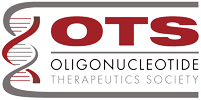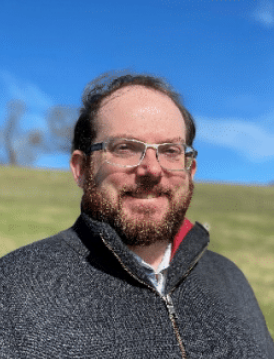
Seth Alexander, PhD
Director, RNA Technologies
Prime Medicine
About Seth Chase Alexander, PhD
PERSONAL STATEMENT/MOTIVATION:
The field of gene editing is rapidly expanding, propelled by nucleotide therapeutics such as mRNAs, synthetic guides, SSOs, and other various non coding nucleic acids. I believe that my experience in designing and evaluating RNAs for gene editing applications makes me a valuable contributor to the society. My motivation for seeking a position on the board is to support the society in this rapidly evolving field, given my background in building mRNAs and gRNAs from the chemistry up.
The core tenet of my work is around scientific integrity and the importance of letting science lead. I believe it is absolutely critical to focus on designing experiments with appropriate controls that allow us to listen to what nature is telling us, rather than trying to prove ourselves right by setting up experiments that confirm our biases. Furthermore, I strongly believe that in order to develop robust scientific progress,we must be transparent and collaborate as a community to solve the significant challenges of the field no one individual could ever hope to solve on their own.It is with this core foundation that I would operate in a board role to support the society’s mission of promoting the best and most robust scientific excellence possible in our field.
On a personal note, I first attended an OTS meeting in Munich in 2019 while at Intellia Therapeutics and quickly realized the OTS family was where I belonged. I had the honor of meeting several leaders from the society who were all so welcoming and supportive. It was a great conference experience as a young scientist,and I made several connections whom have developed into close colleagues and friends. Multiple key OTS society members and the society as a whole has given so much to me in terms of mentorship, guidance, and opportunity. It would be my honor and privilege to work in service to the society that supports the members of today and tomorrow as we continue to develop and expand nucleic acid therapeutics from oligos, to mRNA, to lncRNA and beyond.
BIOGRAPHY:
I have a Ph.D in Organic chemistry with over 6 years of industry experience designing and evaluating mRNA and guide RNA therapeutics for gene editing applications. My career in oligonucleotide therapeutics began as a post doc where I co-invented a novel RNA labeling technology to site–specifically and covalently modify RNA. I then spent 4 years at Intellia Therapeutics(2016-2020)where I focused on developing Cas9 mRNA that made its way into clinical programs as well as guide RNA sequence and chemical modifications aimed at improving the therapeutic Index of gene editing drug products. I then spent one year at Resilience(2020-2021)working on platform processes for their nuclei acids Franchise. Most recently,I joined Prime Medicine in April of 2021 leading Prime’s RNA Technologies function to oversee the design and development of RNA drug substances for Prime Editing applications.
AFFILIATIONS:
- OTS Member since 2019
- Currently Serving on TIDES Planning Committee
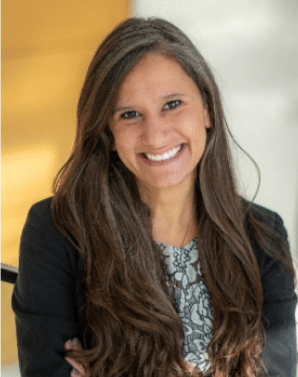
Julia Alterman, PhD
Assistant Professor
UMASS Chan Medical School
About Julia Alterman, PhD
PERSONAL STATEMENT/MOTIVATION:
I have been attending OTS meetings since I was a Research Associate in Anastasia Khvorova’s Lab in 2014. Through almost a decade of engagement in this community, I have come to revere the OTS as the most important and insightful contributor to the-oligonucleotide therapeutic field. I find the intersection of industry and academia particularly engaging as it supports the community’s goal of realizing the potential of oligonucleotide therapeutics to impact human health, while encouraging innovative new discoveries in chemistry and biology of disease. Over my career, I have gained experience from both industry and academia.I worked for 6 years in two small biotech companies from 2007-2013, after which I earned my PhD at the RNA Therapeutics Institute at UMass Chan Medical School focused on siRNA development for CNS conditions that led to the establishment of a new biotech start up. I learned to appreciate the dedication required to ensure the success of a small biotech company while also grasping the scientific rigor necessary for pre-clinical development of novel therapeutics.
As an Assistant Professor,I am most fascinated by oligonucleotide chemical biology and understanding the role chemistry plays in impacting pharmacokinetics/pharmacodynamics. In this role,I have been working on developing these molecules for use in multiple organ systems(skin, muscle, eye, and bone), often in collaboration with industry partners. I believe that having a broad understanding of both the early research and late-stage pre-clinical work required for the development of successful technologies will complement the society’s mission of fusing both fields for the benefit of science and patients.
In addition to my research experience, I also cherish the opportunities I have had to mentor young scientists and have been part of the OTS mentoring program over the past year.
If given the honor to serve as a board member of the OTS I look forward to supporting the society’s mission by sharing new ideas,helping to build the growing academia-industry relations fueled by OTS,and engaging in trainee development, much like the OTS has done for me.
BIOGRAPHY:
I began my scientific career in chemical biology and in vitro pharmacology working at two small biotech companies in the Boston area. During this time, I worked on novel small molecules and peptide-lipid conjugates for the treatment of inflammatory indications and metabolic diseases, respectively.
In 2014, I joined Anastasia Khvorova’s lab at the University of Massachusetts Chan Medical School to pursue my PhD developing chemically durable, safe, and effective therapeutic oligonucleotides. My work focused on a novel branched siRNA scaffold with widespread and potent silencing in the central nervous system, which has been utilized as a tool for multiple labs interested in CNS and was licensed exclusively to Atalanta Therapeutics focused on developing this structure for the treatment of neurodegenerative diseases.
I am currently an Assistant Professor at UMass Chan Medical School, with a research focus on “solving” the problem of oligonucleotide delivery to extra hepatic tissues. My group is working on targeting skin, muscle, bone, and eye, as well as designing and identifying hyper-functional sequences for specific genetic targets.We are passionate about using our siRNA chemical toolbox in collaboration with academia and industry to support quick and targeted therapeutic solutions to a wide array of genetic diseases.
AFFILIATIONS:
- Assistant Professor, RNA Therapeutics Institute, UMass Chan Medical School
- Editorial Board, MTNA
- Scientific Advisory Board, Vect-Horus

Shalini Andersson, PhD
Chief Scientist and Head of Oligonucleotide Discovery
AstraZeneca/Discovery Sciences
About Shalini Andersson, PhD
PERSONAL STATEMENT/MOTIVATION:
The oligonucleotide field is showing great potential to provide novel therapeutic opportunities to treat patients both in rare and more broader diseases. For the last 7 years I have been working with different types of oligonucleotides including mRNA, antisense oligonucleotides and siRNAs and really appreciate the wealth of knowledge that the oligonucleotide therapeutic community has shared with me and others. The importance of communicating the nucleotide research more broadly and sharing learnings as nucleotide therapeutics are discovered, tested in patients and reach the market is I feel a key objective of the OTS. I also believe that the OTS represents a healthy mixture of academia, biotech and big pharma representing the science diversity and breath/depth of knowledge required to push the scientific boundaries in the field. Currently, I have a leadership role in AstraZeneca with a focus on oligonucleotide discovery including nucleotide therapeutics and targeted delivery of RNA molecules as well as driving collaborations in the field with academic and industrial partners.Championing the area both within AstraZeneca and in the European academia has given me many insights into people’s perceptions of the field and activities the OTS may want to engage in to promote the area to a wider community.
As member of the BOD during the past 2 years I have contributed to the society by actively participating in board and OTS meetings including reviewing proposals for OTS local delivery events. I have also promoted OTS within Sweden and Europe to increase the engagement and participation of scientist into the OTS.
I have also engaged in different activities to promote oligonucleotide field such as Nucleic Acid Therapy Accelerator in UK; DARTER network in EU and OligoNova in Sweden.
Helping to mentor and coach young scientists is important to me. Within AstraZeneca, I try to provide scientific leadership in the oligonucleotide filed and I spend a significant part of my time mentoring young talent and support training of post-docs, graduates and PhD students and would have the support of the younger members of the OTS society high on my agenda.
I would be very happy to continue to contribute strongly to the Oligonucleotide Therapeutics Society such that the society and OTS meetings continue to thrive and are attractive for scientists to attend.
BIOGRAPHY:
I have more than 20 years of experience in the Pharmaceutical industry in research from discovering and developing small molecules and during the last 7 years also from RNA based therapeutics. I have broad experience from both management of departments and teams as well as setting and delivering business strategies. I am also involved in several collaborations with biotech companies as well as with academic groups around the globe. I obtained a PhD in organic and analytical chemistry in 1989 from Linköping University. After a post-doc in Germany, I joined Linköping University as a Senior lecturer in Organic Analytical Chemistry and became an Associate Professor (Docent) in 1996 during which time I also gave birth to 2 children. In 1997, I joined AstraZeneca as a senior researcher and during my career I have held numerous management roles including Senior Director Drug Metabolism and Pharmacokinetics, Head of Enabling Technologies and Head of Lead Optimization, Medicinal Chemistry. I am currently Chief Scientist and Head of Oligonucleotide Discovery in Discovery Sciences at AstraZeneca. I have strong experience as a project leader for research and business change projects locally and globally within AstraZeneca. I am currently involved in several collaborations e.g. with Ionis Pharma, Moderna Therapeutics, Silence Therapeutics and OligoMed (EU funded) within the RNA field. I have over 60 peer reviewed publications, 2 book chapters and 6 patents and have presented my work at conferences throughout my career including chairing sessions at conferences.
AFFILIATIONS:
- Member of the board for OligoNova, Swedish national centre for research and development of therapeutic oligonucleotides
- Member of Scientific Advisory Board Nucleic Acid Therapy Accelerator (NATA), UK
- Member of the management committee for European Cooperation in Science & Technology action: Delivery of antisense RNA therapeutics
- Board member, Swedish Chemical Imaging Infrastructure
- Member of several Joint steering Committees for collaborations with AstraZeneca partners
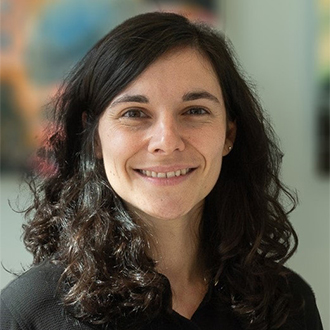
Annabelle Biscans, PhD
Associate Principal Scientist
AstraZeneca
About Annabelle Biscans, PhD
PERSONAL STATEMENT/MOTIVATION:
I believe that I could bring valuable insights to the Board as a former Board of Directors member and as a member of the society. I would like to thank you for considering my application and really hope that we could work together to advance the field.
BIOGRAPHY:
I am an Associate Principal Scientist in the Oligonucleotide Chemistry team at AstraZeneca R&D, Sweden. My work mainly focuses on the development of safe and efficient oligonucleotide therapeutics to treat diseases with unmet clinical needs. Over the past 9 years, I acquire a robust expertise in designing and developing novel chemical modalities to improve oligonucleotide therapeutic delivery. Before joining AstraZeneca in 2020, I was a postdoctoral associate at the RNA Therapeutics Institute, USA in Anastasia Khvorova’s lab, one of the pioneers in oligonucleotide therapeutics research. There, I made major contributions to the development of novel chemical platforms for enhancing the delivery and uptake of siRNA therapeutics. I was able to design and identify novel conjugated siRNAs that enable safe, sustainable and robust silencing in various extra-hepatic tissues including muscle, heart, and lung. This crucial discovery allows for the targeting of several new targets for therapeutic intervention and advance the oligonucleotide therapeutics field. In 2015, I obtained my PhD in chemistry from the University of Montpellier (France), where my work focused on the chemical synthesis of RNA prodrugs for the development of new therapeutic oligonucleotides. I established and optimized synthetic methods to successfully synthesize novel 2’-modified siRNAs and demonstrated that incorporation of 2’-biolabile moieties can be efficiently used to improve siRNA stability and uptake without major toxicity.
AFFILIATIONS:
- The past 2 years, I served on OTS Board of directors, Secretary role
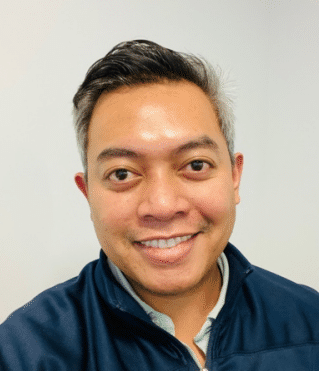
Fred Briones, PhD
Director
Tessera Therapeutics
About Fred Briones, PhD
PERSONAL STATEMENT/MOTIVATION:
My fascination with RNAs began around 8 years ago when I started my career as a nucleotide chemist at Moderna. Prior to that, I was a medicinal chemist postdoc at AstraZeneca in Waltham, MA and making the decision to jump into a completely new field of research was definitely a leap of faith. Back then, I knew very little about RNA but Moderna’s promising technology, of using our body to produce our own medicine through mRNA was very intriguing to me and so between pursuing a career in process chemistry, I chose Moderna as my first venture into industry and the rest is history.
At Moderna, I harnessed my knowledge of chemical modifications and nucleotide chemistry to impact the biology of RNA. It was back in 2016 when I attended my very first OTS conference in Montreal where I met a lot of great oligo scientists. Being able to interact with colleagues from industries and academia was a lot of fun and I made a lot of connections from that experience. The talks during the conference were very informative and really highlighted the exciting breakthroughs and innovations in the field. In 2018, I decided to focus mainly on oligonucleotides and so I joined Alnylam’s manufacturing team. There I worked with the best oligo scientists I know, and I felt that my experience at Alnylam really solidified my place in the oligo therapeutics industry. Currently, I am leading the oligo chemistry team at Tessera therapeutics where my team tackles the very challenging task of long oligo synthesis.
Serving on the OTS Board of Directors will be a once in a lifetime opportunity. I think very highly of the goal and values of OTS as it provides a platform to bring together advancements and exciting breakthroughs in the field. As I grow professionally, I believe that the OTS will provide me with an incredible opportunity to meet influential, friendly, and smart scientists with similar interests. As I meet new connections, I’ll make se to connect in meaningful ways as well as continuous and consistent connections. I also believe that this board position will provide me with an opportunity to coach and mentor others, including members of the organization’s management team or junior board colleagues. I think that I can provide inspiration to young scientists in sharing my experience in building an oligo team from the ground up.
Thank you very much for considering my application and I hope that I can be part of this wonderful organization.
BIOGRAPHY:
Fred Briones obtained his bachelor’s degree in Chemistry from the University of the Philippines. In 2011, he obtained his PhD in Synthetic Organic Chemistry from Emory University studying enantioselective transformations involving Rhodium (II) carbenoids. In 2013, he joined the Infection Chemistry team at AstraZeneca in Massachusetts where he worked on the synthesis of small molecule antibiotics.His interest in nucleotide chemistry started when he joined Moderna in 2015 where he led the efforts in the screening of modified nucleotides for mRNA synthesis. In 2018, he then joined Alnylam where he gained experience in oligo process development and manufacturing. Currently, he is the Director of Oligo Chemistry at Tessera Therapeutics where he is helping build the R&D as well as manufacturing capabilities to support Tessera’s Gene Writing Technology.
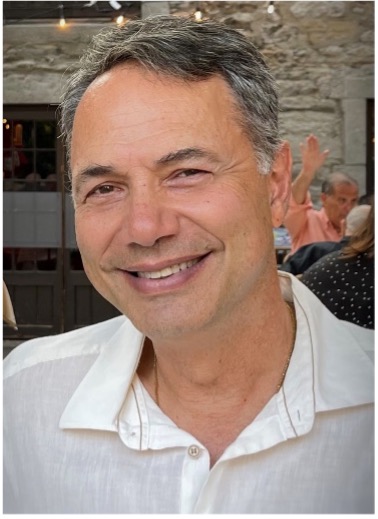
Masad J. Damha, PhD, FCIC
Distinguished James McGill Professor
McGill University
About Masad J. Damha, PhD, FCIC
PERSONAL STATEMENT/MOTIVATION:
I have been associated with the OTS since its first annual meeting in 2005 (Rockefeller U, NY) where I met some of the most prominent (and new then) figures in our field. I knew immediately I have found a Society to which I could contribute during the many years to come. First as poster and oral presenter, and later as board member, eventually serving as President of the OTS (2012-13). Those were exciting years; new committees started to be formed under the leadership of our Board and subsequent Presidents (Brett Monia, Art Krieg, Annemieke Aartsma-Rus) and our Society witnessed great growth. When my term in the Board ended in 2014, I continued to serve in the Scientific Advisory Council, and co-hosted of the 12th Annual Meeting (Montreal, 2016). I also introduced (and chaired) our Chemistry Sessions at OTS meetings for several years. I would like to continue working on the OTS Board of Directors, continuing building the mentorship program for new investigators (and members at large), facilitating their growth at their workplace, serving as ‘service point’ that connect them to academic and industrial centers. One of my best experiences as an academic and graduate supervisor is sharing my own personal experiences with new scientist and equipping them with tools that will help them move and succeed at the workforce. I would like to continue do this as a mentor not only at McGill but also at my “OTS “University! Now I am looking forward to co-hosting the 2024 OTS meeting in Montreal.
BIOGRAPHY:
I teach Chemistry at McGill, and I work with MSc, PhD and postdoctoral students pursuing studies in Nucleic Acid Chemistry & Biology. With them, I have been developing chemically modified oligonucleotides and methods for their synthesis. Through our work, we have discovered many of them have properties that render them adaptable for numerous biological applications. In some cases, these studies have been essential in deciphering structure-function relationships between our oligomers and enzymatic machinery associated with the antisense, RNAi, and CRISPR-Cas9/12a pathways. We start with chemistry to design and construct molecules, test them biochemically/biophysically in vitro and then, through collaborative work, we apply them in live-cells and animal disease models (Duchenne Muscular Dystrophy, ALS, virus, etc.). For more information about our work, students, and scientific publications, please visit our website:http://damha-group.mcgill.ca/
AFFILIATIONS:
- Academies, Societies & Foundations:
- National Academy of Science of Nicaragua(ACN)
(Corresponding Member) - Foundation for the Advancement of Science, Technology and Education of Nicaragua (FASTEN)
(Co-founder) - Nucleic Acids Therapeutics (Journal)
(Member, Editorial Board) - Oligonucleotide Therapeutics Society (OTS)
(Member, Board of Directors, 2022-present)
- National Academy of Science of Nicaragua(ACN)
- Scientific Advisory Boards:
- Aro Biopharmaceuticals
- Deep Genomics
- Hongene Biotech
- Korro Bio
- ONO Pharma Foundation
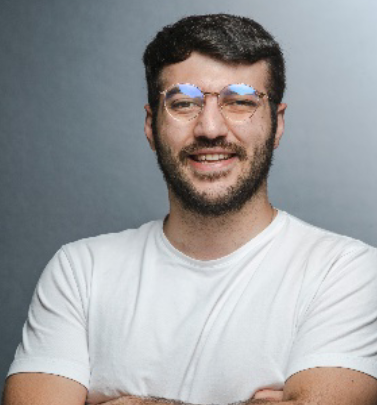
Hassan H. Fakih, PhD
Post-Doctoral Associate
UMass Chan Medical School, RNA Therapeutics Institute
About Hassan H. Fakih, PhD
PERSONAL STATEMENT/MOTIVATION:
Since then, I have actively engaged with the OTS community, attending the meeting every year,and helping host the educational webinars offered by the society.I also had the privilege to serve as a trainee representative to the board for two years.I have benefited immensely from the rich scientific environment and the mentorship and support of OTS members. I am eager to serve on the OTS board to give back to the community that has supported me so much.
As a board member, I would focus on two key areas:
- Supporting the next generation of scientists and trainees. The OTS community has a vibrant culture of mentorship and collaboration. I would work to strengthen these programs and create new opportunities for young scientists to network, learn, and grow.
- Expand on the educational reach of the society by helping to grow the educational webinars and organize regional meetings across the world (Asia, middle east, Australia)
I am confident that my skills, experience, and passion for oligotherapeutics would be a valuable asset to the OTS board. I am committed to serving the community and helping to advance the field of oligotherapeutics.
BIOGRAPHY:
I am a Postdoctoral Associate in the lab of Prof. Anastasia Khvorova at the RNA Therapeutics Institute at UMass Chan Medical School. My research focuses on improving the extra-hepatic delivery of siRNA therapeutics using self-assembled nucleic acid particles and specific protein-binding conjugates. I am particularly interested in applying this research to the treatment of oncology, muscle diseases, and CNS disorders.
Some of this work has been recognized by the OTS community, where I have received several awards for my research, including the Dr. Alan Gewirtz Memorial Scholarship for Graduate Students in 2021. I have also been actively involved with the OTS Society since 2020. I have helped host many of the OTS monthly webinars and served as a trainee representative on the board for the 2022-2024 term. In 2022, I hosted the next-generation session in Phoenix and co-led the establishment of the first official cohort of the OTS Mentorship Program, which is now a fixed yearly offering with an annual budget to support mentees in attending the annual meeting and other mentorship events.
AFFILIATIONS:
- Scientific advisor to Banook Group on nucleic acid therapies (Banook Group, based in Nancy France, Montreal Canada, and Boston USA)
- Trainee Representative Board memberto the OTS 2022-2024
- Controlled Release Society member (CRS and Canadian Chapter –CRS, VP communications)
- Hereditary Disease Foundation Fellow 2022-2024
- Society for the Advancement of Science and Technology in the Arab World (SASTA) member
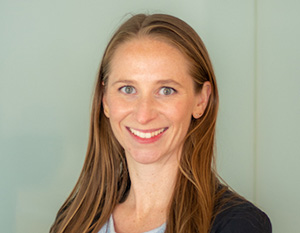
Chantal Ferguson, PhD, MD
Resident, Interventional Radiology
Massachusetts General Hospital
About Chantal Ferguson, MD, PhD
PERSONAL STATEMENT/MOTIVATION:
The OTS has been instrumental for me throughout the early stages of my career and has provided a warm community for me, and other early career scientists, to grow. I recently earned my MD/PhD from UMass Medical School and am passionate about working as a physician-scientist, aiding in the development and application of novel therapeutics for some of the most challenging diseases. I achieved my PhD in March 2021 in Anastasia Khvorova’s lab, defending my graduate research on the development of therapeutic siRNAs for neurodegenerative diseases, and have developed an in depth understanding of oligonucleotide chemistry, therapeutics, and research that is key to furthering the missions of the OTS.
I was fortunate to be welcomed into the OTS community early in my career and attended my first OTS meeting in Seattle in 2018. I was struck by the unparalleled sense of community, the efforts to engage and include early career scientists, and the wide breadth of innovation. I wanted to learn and contribute to the society and was fortunate to serve as a trainee representative on the Board of Directors from 2021-2023. As a trainee representative, I have learned about the society’s history and contributed as a mentor, to the society’s journal, and as an organizer for the early career sessions at the 2022, in person annual meeting.
I am currently continuing my clinical training as an Interventional Radiology residency at Massachusetts General Hospital. By providing direct patient care on multidisciplinary teams, I have deepened my understanding of medicine, clinical practice needs, and, most importantly, patient insights and perspectives. At this stage, I would like to contribute to the OTS to a greater degree and step up as a full board member, and I ask for your support to do so. As the field rapidly expands, my training in research, clinical medicine, and patient care allows me to provide unique perspectives, particularly regarding clinical needs and feasibility, and most importantly, insight into the patient experience. I am committed to maintaining the inclusive and tight-knit culture within the OTS, to fostering the collaborative and open spirit of the society, and to promoting the next generation of scientists in oligonucleotide therapeutics.
BIOGRAPHY:
Chantal is currently continuing her medical training in Interventional and Diagnostic Radiology at MGH and plans to focus on integrating interventional techniques and knowledge with oligonucleotide therapeutics and discovery.
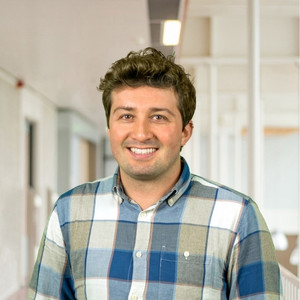
Alex Garanto, PhD
Associate Professor
Radboud university medical center
About Alex Garanto, PhD
PERSONAL STATEMENT/MOTIVATION:
I enjoy making new connections and working with people from many places of the world. In fact, I was part of the management committee of the European network called DARTER (2018-2022) and I am co-founder of the Dutch Antisense Therapeutics Society, co-organizer of the annual symposium of the Society, which aims to strengthen the antisense field in the Netherlands and neighboring countries by providing an accessible platform for young researchers to network and interact with national and international experts in the field.
BIOGRAPHY:
AFFILIATIONS:
- Research Group Leader at the Radboudumc
- Co-founder and Board member of the Dutch Antisense Therapeutics Society that organizesthe annual Dutch Antisense Therapeutics Symposium (www.dutchantisense.org)
- Member of the Oligonucleotide Therapeutics Society
- Member of the Netherlands Society for Gene and Cell Therapy (NVGCT)
- Member of the European Society for Gene and Cell Therapy (ESGCT)
- Member of the Association for Research in Vision and Ophthalmology (ARVO)
- Vice-chair of the hDMT Eye-on-Chip working group
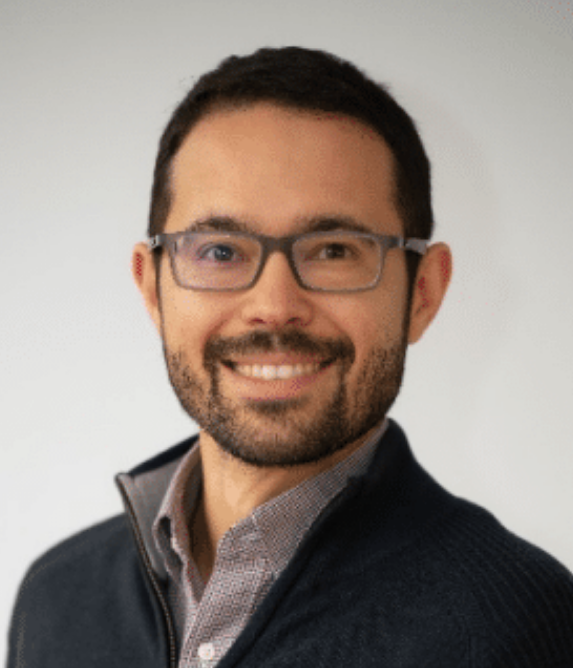
Bruno Miguel da Cruz Godinho, PhD
Senior Scientist
Atalanta Therapeutics
About Bruno Miguel da Cruz Godinho, PhD
PERSONAL STATEMENT/MOTIVATION:
The Oligonucleotide Therapeutics Society(OTS) is a unique scientific society that fosters synergies between scientists in industry and academia to bring oligonucleotide-based therapeutics to fruition. The OTS has also become a great platform for young scientists to learn from and be inspired by leaders in the field. The simple, informal at many times, and rich environment of the annual meetings, mentorship programs,webinars,and local delivery meetings are of high scientific quality and very enjoyable.Keeping this stimulating and healthy environment is paramount.The main reason I would like to participate as a board member is to continue to help shape the future of the society, creating and supporting many of its initiatives that serve scientists in the field.
It was a great honor to serve on the Board of the OTS for the last term. Through this experience,I have seen firsthand the passion and care that is put into every decision,both from junior and senior members across the board. During my term, I have supported the activities of a variety of subcommittees, as well as chaired one.In addition, I have also previously supported other OTS-backed events/initiatives: Member of the organizing committee for the Annual Meetings of the Society in 2021 and 2023, where I co-chaired pre-clinical sessions; Member of the Scientific Advisory Committee for the 1st Symposium on Oligonucleotide Technologies & Therapeutics in Portugal. Would also like to highlight that I continue to serve the broader scientific community by sitting as a scientific advisor at the Health & Technology Research Centre (ESTESL),and on the editorial board of Nucleic Acids Therapeutics, Drug Delivery (Frontiers) and Saúde&Tecnologia (ESTESL).
I believe that based on these previous/current experiences I can be a real asset to the BOD of the OTS.Thus, it would be a privilege to continue sharing the responsibility of growing and maintaining the society, as well as to educate/train the next generation of oligonucleotide scientists.
BIOGRAPHY
Bruno Godinho received his foundational pharmacy training at the Lisbon School of Health Technology (ESTESL, Portugal) where he obtained his Bachelor’s degree. During his time in college he undertook research internships at Utrecht University (Utrecht, TheNetherlands) and Universidade NOVA de Lisboa (Caparica, Portugal), which were key shaping his interest in pursuing a career in scientific research. His Master degree in Clinical Pharmacology obtained at the University of Glasgow (Scotland, UK) fostered, for the first time, his interest in gene therapy and gene silencing. He later received his Doctorate degree from University College Cork (Cork, Ireland) where he studied formulation-based approaches for the delivery of therapeutic oligonucleotides to the central nervous system (CNS). He then joined Prof. Khvorova’s Lab at the RNA Therapeutics institute (UMass Medical School) as a postdoctoral fellow to learn and gain experience in the design and delivery of fully-modified conjugated therapeutic oligonucleotides. During his training,he made significant contributions towards the identification of neuroactive siRNA scaffolds that enable potent and sustained gene silencing in the CNS, without the need for synthetic formulation. In 2016, he received the Milton-Safenowitz Post-Doctoral Fellowship Award from the Amyotrophic Lateral Sclerosis Association (ALSA) to support his research. Bruno is also the recipient of other career awards, including the Dr. Alan M. Gewirtz Memorial Scholarship Award (Oligonucleotide Therapeutics Society), the STAT 2019 Wunderkind Award (STAT News) and a Silver Medal from the Polytechnic Institute in Lisbon (Instituto Politécnico de Lisboa). While a postdoc, Bruno acted as an Adjunct Professor at the Lisbon School of Health Technology (ESTESL, Portugal) and Guest Lecturer at the Instituto de Engenharia de Lisboa (ISEL), teaching pharmacy-related subjects and advanced therapeutics.
At Atalanta Therapeutics, a CNS-focused RNAi therapeutics company, Bruno leads platform development and innovation efforts, and is the lead in vivopharmacologist for several internal and partnership programs.
AFFILIATIONS:
- External Scientific Advisor at the Health & Technology Research Centre (Escola Superior de Tecnologia da Saúde de Lisboa (ESTESL), Lisbon, Portugal)
- Guest Lecturer in Advanced Human Therapies, Master Program in Biomedical Engineering (Instituto Superior de Engenharia de Lisboa/ESTESL, Lisbon, Portugal)
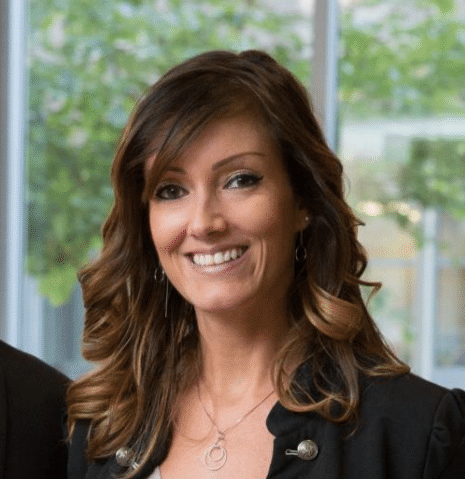
Aurelie Goyenvalle, PhD
Director of Research Inserm
UMR1179-University of Versailles, France
About Aurélie Goyenvalle, PhD
PERSONAL STATEMENT/MOTIVATION:
My journey with the Oligonucleotide Therapeutics Society began in 2011 when I attended my first OTS meeting in Copenhagen. Over the years, I have witnessed the OTS community’s growth and its commitment to fostering exceptional science, encouraging collaboration between academia and industry, and nurturing a vibrant exchange between scientists at different career stages.I am proud to have received two prestigious awards from the society: the Dr. Alan M. Gewirtz Memorial Scholarship Award in 2011 and the Mary Ann Liebert Publishers, Inc. Young Investigator Award in 2016. These serve as a reminder of my commitment to advancing the field of oligonucleotide therapeutics and the kind recognition and support I have received from the OTS community.
One of the most fulfilling aspects of my involvement in OTS has been my role in the annual meetings. I had the privilege to be a part of the organizing committee for the past two annual meetings in 2022 and 2023. These experiences have allowed me to contribute to the annual meetings’ success, and I have found great reward in this collaborative endeavor.
Beyond my own research projects, I have actively participated in building networks that promote the application of oligonucleotide technology in Europe. As a founding member and management committee member of the European networks “Networking towards clinical application of antisense-mediated exon skipping” (COST Action BM1207) and “Delivery of Antisense RNA therapeutics” (COST Action CA17103), I have played a pivotal role in connecting European experts in the field. In the latter network, I led the working group on Safety and Toxicology, further underscoring my dedication to sharing knowledge and promoting the safe and effective application of oligonucleotide therapeutics.It would be a great pleasure to serve on the OTS board of directors to contribute to the society’s mission, particularly its commitment to education and inclusivity, and to work with the dedicated individuals who share a passion for advancing oligonucleotide therapeutics.
BIOGRAPHY
Aurélie Goyenvalle obtained her PhD in Virology at the University of Paris VII in 2006 from her work at Genethon in France, where she developed an exon-skipping gene therapy strategy for Duchenne muscular dystrophy (DMD) using AAV vectors encoding U7snRNA constructs carrying antisense sequences. She then joined Pr. Kay Davies’ laboratory at the University of Oxford as a post-doctoral scientist supported by an EMBO fellowship. During her postdoc in Oxford and subsequent position at the Medical Research Council (MRC),she developed various splicing modulation approaches for neuromuscular and neurodegenerative diseases, including peptide-conjugated antisense oligonucleotides.
In 2011, she joined the Institute of Myology in Paristo investigate splice switching approaches using novel antisense oligonucleotides and in 2012, she was awarded a Chair of Excellence program to establish her own group at the University of Versailles to develop novel RNA based technology for the treatment of neuromuscular diseases. She notably demonstrated the therapeutic potential of a novel class of AONs made of tricyclo-DNA (tcDNA), which displays unique pharmacological properties and unprecedented uptake in many tissues after systemic administration.
In 2015, Aurélie was appointed a permanent research scientist at INSERM and in 2020 Director of Research to pursue this line of research. Aurélie Goyenvalle is currently directing the laboratory Biotherapies for neuromuscular diseases at the University of Versailles (UMR 1179) focused on gene and antisense therapies for the treatment of neuromuscular disorders.
AFFILIATIONS:
- Member of the Oligonucleotide Therapeutics Society
- European editor of Nucleic Acid Therapeutics
- Editorial board of Molecular Therapy Nucleic Acids
- Reviews editor of Gene Therapy
- Founding member of the Delivery of Antisense RNA therapeutics (DARTER) network
- Member of the extended TREAT-NMD Advisory Committee for Therapeutics (TACT)

Shuling Guo, PhD
VP of Drug Discovery
Ionis Pharmaceuticals
About Shuling Guo, PhD
PERSONAL STATEMENT/MOTIVATION:
Since I joined Isis/Ionis back in 2004, the OTS conference has consistently held a special place on my calendar. It serves as a platform where I not only stay updated with the latest scientific breakthroughs in the oligonucleotide therapeutic community but also reconnect with longtime colleagues while forging new connections. Over the years, these gatherings have proven invaluable for fostering collaborations and driving innovation.
As I continue to evolve in my role as an oligo scientist and a leader in this exciting field, I owe a debt of gratitude to the seasoned leaders within OTS who have served as my role models and mentors. Their guidance has been instrumental in my professional growth. I now find myself at a juncture where I am eager to contribute more actively to the organization. My vision is aligned with the foundational mission and purpose for which OTS was established, and I am enthusiastic about helping the organization realize its full potential.
- Diverse Expertise in Oligonucleotide Research. Over the years, I have managed drug discovery activities in cardiorenal, metabolic, pulmonary, hematological, and rare diseases, in addition to core research efforts including non-coding RNA, nonsense-mediated mRNA decay, and autophagy. I am well-versed in modalities such as single strand ASO, double strand siRNA, and CRISPR gene editing.To date, I have published over 70 scientific articles on oligo-related topics.
- Robust Network Across Academia and Industry. I have established collaborations with academic investigators and pharmaceutical partners, fostering connections across diverse disease areas. This network amplifies my ability to navigate and contribute meaningfully within the expanding OTS community.
- Additional skills:
- Mentorship–mentoring postdocs, sponsoring Ionis summer intern program, and serving on career panels in various settings.
- Conference Organization–Serving on the advisory committee for TIDES, functioning as a session organizer and chairperson at conferences.
- Compliance and Corporate Responsibilities–Serving as the Institution Office for the Ionis animal care and use program and on the Corporate Responsibilities committee.
- Delivery-Focused and Responsible Persona: With a commitment to delivering high-quality outcomes, reflecting a responsible and results-oriented approach.
In summary, my qualifications coupled with a passion for advancing the mission of OTS, position me as a valuable candidate for the Board of Directors. I am eager to leverage my skills and experiences to contribute to the continued success and growth of OTS.
BIOGRAPHY
My name is Shuling Guo. I earned my Ph.D. in Molecular Cancer Biology from Duke University and completed my postdoctoral training at HHMI/UCLA. Since joining Ionis Pharmaceuticals in 2008, I have steadily taken on increasing responsibilities and currently hold the position of Vice President of Drug Discovery.
In my role, I manage the drug discovery activities within the CardioRenal, Metabolic, and Pulmonary franchises. My responsibilities span the entire drug discovery process, from target identification, target validation, to the selection of human development candidates. Additionally, I am closely involved in the clinical development of RNA therapeutics. Under my supervision, many compounds have been approved (e.g. Tegsedi®), in registration (e.g. WainuaTM), or at various stages of development (e.g. Sapablursen in phase 2 development) in the past 15 years. Recently, I have extended my expertise beyond gene silencing, now delving into the realm of gene editing through the innovative use of CRISPR technology.
Throughout my tenure, I have also overseen exploratory research initiatives, investigating areas such as noncoding RNA, autophagy/mitophagy, and nonsense-mediated mRNA decay. To date, I have published over 70 articles, a majority of which are related to the applications and mechanisms of antisense technology in various therapeutic areas.
AFFILIATIONS:
- Member, Oligonucleotide Therapeutics Society (OTS)
- Member, American Society of Nephrology (ASN)
- Member, American Thoracic Society (ATS)
- Member, International BioIron Society (IBIS)
- Member, TIDES advisory committee
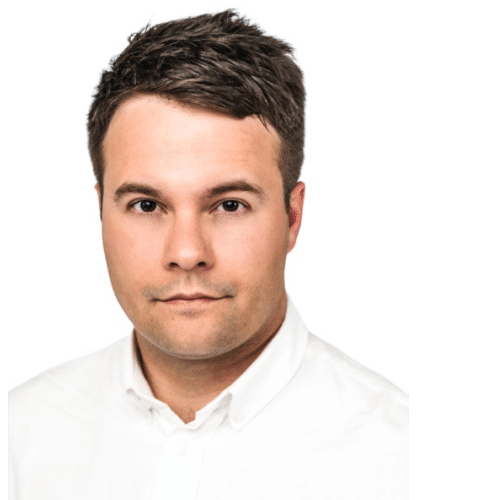
Martin Jacko, PhD
CEO
Aperture Therapeutics
About Martin Jacko, PhD
PERSONAL STATEMENT/MOTIVATION:
I am interested to serve on the OTS Board of Directors to support engagement and development of early-stage biotech companies as the major catalysts of innovation and translation, and to offer a perspective of an early career executive on issues facing the oligonucleotide therapeutics field.
I have extensive professional experience in founding and operations of drug discovery startups, business model development, IP law, fundraising, team building, and mentoring of scientists. My training in RNA biology, neuroscience, and genetics gives me an appreciation of the many challenges facing oligonucleotide-drug development including the poor predictive power of many disease models and the limitations of drug delivery. I am looking forward to engaging with the OTS community and help in promoting discussion of diverse scientific/business ideas and identifying emerging leaders.
BIOGRAPHY
As the CEO of Aperture Therapeutics, I lead a biotech company that develops innovative therapies for age-related neurodegenerative diseases using RNA-based therapeutics for immunomodulation. I have a strong scientific background and entrepreneurial experience, with a Ph.D. in Pathobiology and Molecular Medicine from Columbia University and multiple publications, patents, and awards in the fields of neuroscience, genomics, RNA, and immunology.
Prior to founding Aperture Therapeutics, I held various positions in scientific leadership, business development, and R&D operations at Bridgebio and Serotiny, where I contributed to the discovery and development of novel drugs and platforms for rare and genetic diseases. I also completed a postdoctoral fellowship at Stanford University, where I focused on building high-throughput in vitro directed evolution platforms for development of novel molecules to regulate activity of neurons.
AFFILIATIONS:
- RNA Society –member
- Biotechnology Industry Organization (BIO) –member
- Society for Biological Engineering -member
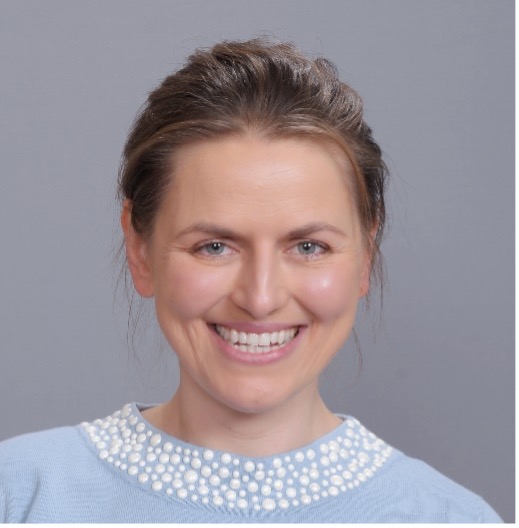
Maja Janas De Angelis, PhD, DABT
Senior Director
Alnylam Pharmaceuticals
About Maja Janas De Angelis, PhD, DABT
PERSONAL STATEMENT/MOTIVATION:
I was first elected to the OTS Board of Directors for the 2022-2024 term, and I am seeking re-election to continue to serve the Society for two more years. I am a molecular biologist by training, and I became fascinated with small RNAs very early in my career, earning a PhD in microRNA mechanisms and completing a postdoctoral training in the RNAi Therapeutics group at the Novartis Institutes for BioMedical Research. After this extensive training in RNA biology, I joined the investigative toxicology group at Alnylam Pharmaceuticals in 2014 as a scientist, becoming the head of the group and a Diplomate of the American Board of Toxicology (DABT) in 2016. During my tenure at Alnylam, I have been fortunate to be able to contribute to multiple projects where molecular understanding of an issue enabled finding a mitigation strategy, and successfully translating it in humans, from bench to bedside and back.
The first OTS meeting I participated in was in 2016 in Montreal. I was very impressed with the quality of the science and the passion of the participants. Since then, I enjoyed attending the meeting annually and giving multiple oral presentations, including on the safety of 2’F monomers in 2018. In addition, I have been a speaker, a co-organizer, and/or a moderator at multiple other oligonucleotide-focused conferences and workshops, including TIDES, the Annual Meeting of the American College of Toxicology(ACT), Cold Spring Harbor, DIA/FDA Oligonucleotide-Based Therapeutic Conference, AAPS National Biotechnology Conference(NBC), and Pharmaceutical & BioScience Society International (PBSS). I have co-authored 25peer-reviewed papers in the field, including on increasing the specificity of RNAi therapeutics (Nat Commun. 2018), on the safety of 2’F monomers (Nucleic Acids Res. 2019; March 2019OTS Paper of the Month), and on CNS delivery of siRNAs (Nat Biotech. 2022). I would welcome the opportunity to continue to leverage the network I built through these experiences to support the mission of the OTS.
I believe I can continue to bring a valuable perspective to the board as a female scientist with both basic oligonucleotide research and therapeutic development experience, and a proven track record of cross-functional leadership and teamwork. My experience in investigative toxicology, in particular, may nicely complement the existing expertise of the board. I would be honored to continue to channel my passion for the field as a member of the OTS Board of Directors to provide strategic input on the direction of the field and to support its important mission to facilitate the discovery and development of efficacious and safe oligonucleotide treatments for the patients in need.
BIOGRAPHY
I am currently a Senior Director, Investigative Toxicology, at Alnylam Pharmaceuticals where I am leading mechanistic efforts related to nonclinical safety evaluation of RNAi therapeutics targeting a variety of tissues, including the liver, eye, and CNS. I earned a Bachelor of Arts in Chemistry and Biochemistry from the University of Colorado in 2007, and a PhD in Biological and Biomedical Sciences from Harvard University in 2012, working with Dr. Carl D. Novina on novel regulators of microRNA biogenesis and function. After completing a postdoctoral fellowship in the RNAi Therapeutics group at Novartis Institutes for BioMedical Research,I joined Alnylam Pharmaceuticals in 2014,and assumed positions of increasing responsibility in the Early Development organization.In addition to leading the investigative toxicology function, I co-led cross-functional CNS platform efforts to optimize and de-risk novel conjugates for CNS diseases, enabling the advancement of our first CNS program to the clinic. More recently, I have been co-leading the RNA Sciences platform team tasked with optimizing siRNA designs for RNAi and beyond.I have successfully passed the exam to become a Diplomate of the American Board of Toxicology (DABT) in 2016and was awarded the OTS Young Investigator Award in 2020.
One of my most notable contributions to the RNAi therapeutics field includes demonstrating for the first time that the main driver of GalNAc-siRNA hepatotoxicity in vivo is seed-based off-target activity and that thermally-destabilizing seed modifications can mitigate this liability (Nat Commun. 2018; NAR 2022). This discovery fundamentally changed our siRNA lead selection paradigm and provided the framework for the ESC+ platform, with multiple programs now in the clinic.In addition, I have been leading the efforts to establish and implement a de-risking paradigm for unnatural monomers utilized in our RNAi therapeutics, including publishing the first comprehensive in vitro and in vivo de-risking of 2′-fluoro nucleotides (Nucleic Acids Res. 2019; March 2019OTS Paper of the Month). Using this de-risking paradigm, we have been able to transition multiple other unnatural nucleotides to development to support platform advances.
AFFILIATIONS:
- American Board of Toxicology(ABT)
- Oligonucleotide Safety Working Group (OSWG)
- Society of Toxicology (SOT)
- Society of Toxicologic Pathology (STP)
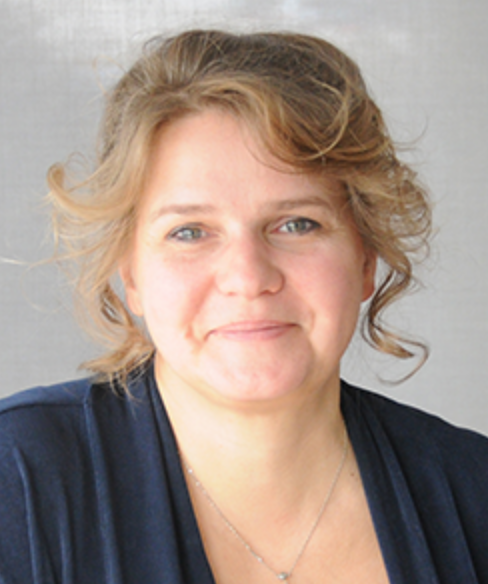
Anastasia Khvorova, PhD
Professor
UMASS Chan Medical School / RTI
About Anastasia Khvorova, PhD
PERSONAL STATEMENT/MOTIVATION:
I have dedicated my scientific career to understanding the fundamental principles behind the development of RNA and siRNA, envisioning them as the next class of therapeutics with the potential to revolutionize how we practice medicine.
I served as an OTS board member from 2010 to 2018, contributing to the definition of the OTS as it stands today. I believe that our field is on the verge of transformative change, and the role the OTS plays is crucial. My unique blend of experiences as an academic PI, pharma executive, co-founder of a small biotech, and adviser to numerous young scientists positions me ideally to guide society into the next chapter.
I am a firm believer in the importance of academia-industry integration and collaboration for our future progress. I hope to serve as a liaison, offering a clear historical perspective and an intimate understanding of the needs and challenges in both worlds.
BIOGRAPHY
Anastasia Khvorova, Ph.D., has over 20 years of experience developing oligonucleotide technology and therapeutics. She is the Remondi Family Chair in Biomedical Sciences and professor at the RNA Therapeutics Institute and Program in Molecular Medicine at the University of Massachusetts (UMass) Chan Medical School. Her lab combines hardcore organic and oligonucleotide chemists with RNA biologists and pharmacologists to develop novel approaches and solutions to understanding natural and therapeutic RNA trafficking and delivery. Dr. Khvorova founded the UMass Nucleic Acid Chemistry Center, the only nonprofit facility in North America with expertise and capacity for complex RNA molecule synthesis at scale and numbers. Dr Khvorova’s laboratory has trained dozens of next-generation scientists expanding the progress of oligonucleotide therapeutics in North America and worldwide.
Before UMass Chan Medical School, Dr. Khvorova spent 12 years in industry in different executive positions. She has co-founded several biotechnology companies.
Dr. Khvorova is a National Academy of Inventors member with more than 150 patents and 300 patent applications. She has authored more than 100 peer-reviewed publications, including seminal articles in Cell, Nature, and Nature Biotechnology, defining the field of RNAi drug design and development. She has served as one of the early directors of the Oligonucleotide Therapeutics Society and as a Director-at-Large, and Scientific & Research Council Chair of the American Society of Gene and Cell Therapy.
AFFILIATIONS:
- ASGCTDirector at large(2020-2023)
- Editor (NAR, MTNA, NAT)
- SAB (Atalanta, Evox, Comanche, Alltrna, Prime Medicine, Aldena)
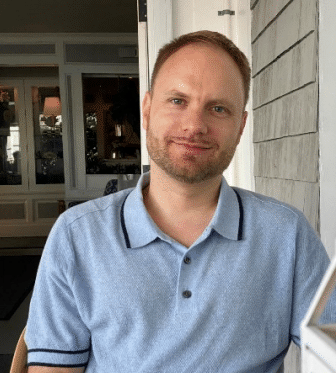
Audrius Kilikevicius, PhD
Research Advisor
Eli Lilly
About Audrius Kilikevicius, PhD
PERSONAL STATEMENT/MOTIVATION:
I am lucky to have been a member of OTS society since 2018when I attended my first meeting in Seattle. Overall these years,I was able to witness the incredible growth of the OTS society both in quality of meetings and in how the society addresses the many hurdles in the nucleic acids field. My constant and passionate interest in following the field by reading up to date publications without restricting myself to any specific nucleic acid modality can provide a broad and visionary outlook to the OTS Board. I appreciate that OTS launched the OTS Mentor Program and continue to teach the community outside of the annual meetings by creating educational webinars. I want to use my unique insights and expertise as a professor, academic and industry scientist,and researcher who transitioned to nucleic acids field from a totally different field to be a valuable and creative coordinator of these programs.
I am a friendly and goal-orientated colleague who actively initiates discussions and uses my curiosity to drive innovative conversations. I can adapt well to the rapidly changing needs of the field and society. I maintain a reputation for executing my responsibilities at a high standard of excellence and enjoy going above and beyond what is expected of me.
At every OTS meeting I have attended, I immediately felt welcomed into the community of scientists that have innovated, hustled, and collaborated for the past two decades to bring the entire class of nucleic acid drugs to life. Now that I’ve witnessed the power of their collective passion, I want to be a part of this team as a member of the Board of Directors, dedicate my time to building the future of this society, and expand this oligo network of brilliant minds.
I am excited to serve on the organizing committee for the second Midwest Symposium on Oligonucleotide Therapeutics supported by Eli Lilly and OTS and use this special opportunity be able to contribute to educating the student community in the Midwest about RNA therapeutics. I want to use the skills I am learning hosting the RNA biology session at this local delivery meeting for expanding education and outreach for the much larger and international OTS Society.
BIOGRAPHY
I have spent most of my professional career in academia serving as a research scientist with some teaching roles as a professor for molecular biology and genetics courses as well as biochemistry labs. The foundation of my expertise in nucleic acids research and therapeutics came from training as a post-doc in David R. Corey’s lab at UT Southwestern. Currently,I am a Research Advisor at Lilly Genetic Medicine in Cambridge, MA.
I have broad professional expertise and understanding covering all aspects required for successful development of oligonucleotides therapeutics. My career started with exploiting quantitative genomic approaches to identify the genetic drivers of skeletal muscle polygenic traits (morpho-functional and metabolic properties), which were critical steps for selecting therapeutic targets. Then I embarked on a bold move from Kaunas, Lithuania to Dallas, TX to pursue my passion in unraveling endogenous mechanisms of RNAi. I applied multi-omic approaches to understand the rules of RNAi functioning in the cytoplasm, in the nucleus,and under different stress conditions and help identify interesting colon cancer targets regulated by microRNAs. These basic science discoveries may be relevant for further optimizing RNAi based drugs. I also contributed to developing oligonucleotide drugs for Friedreich’s Ataxia at the preclinical stage (in vitro and in vivo). While results turned negative in vivo, the lessons learned about the study design, oligonucleotide potency and limitations of animal models are beneficial for the community in developing oligonucleotide drugs to treat trinucleotides expansion diseases.
In summary, I have developed an understanding of both RNAi and different ASO modalities with my expertise builtin both academia and the pharmaceutical industry.
AFFILIATIONS:
- I served as an organizing committee member for the 2023 Midwest Symposium on Oligonucleotide Therapeutics (Indianapolis, IN). I hosted the RNA biology session.
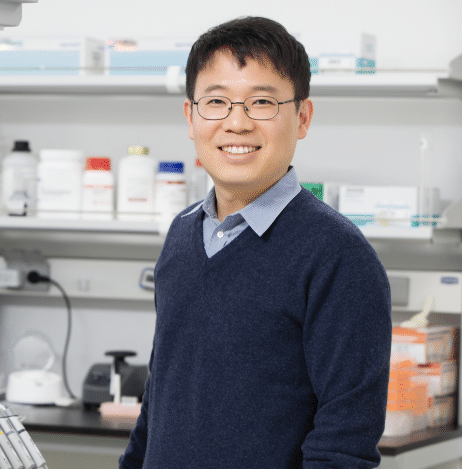
Jinkuk Kim, PhD
Assistant Professor
KAIST (Korea Advanced Institute of Science and Technology)
About Jinkuk Kim, PhD
PERSONAL STATEMENT/MOTIVATION:
This year, I had the pleasure of taking a group of 10 individuals from my laboratory to Barcelona for the annual OTS meeting. While I thoroughly enjoyed the outstanding science and interactions at the conference, I couldn’t help but notice the significant underrepresentation of researchers based in Asia. There is a Cold Spring Harbor Asia meeting specifically focused on RNA therapeutics, which took place in Japan this year. I had the honor of presenting at this meeting and could sense a great deal of interest in RNA therapeutics from Asian researchers. However, there also seemed to be a disconnect between Asia and North America/Europe.
In order to foster inclusivity and expand the reach of OTS, I propose that the organization elects at least one board member from each major country in Asia. This would help bridge the gap between different regions and promote a more global impact. Additionally, I suggest that OTS consider hosting an annual or bi-annual Asian satellite meeting in one of the major Asian countries. Once this satellite meeting gains significant participation from Asian researchers, OTS could then consider holding its worldwide annual meeting, alternating between North America, Europe, and Asia. This would enable even more international and global impact for the society. If I am elected to the board, I am committed to contributing towards realizing this vision.
As an independent scientist, my laboratory is fully dedicated to RNA therapeutics and rare disease research, making OTS the most important conference for me. This is evident from the fact that I brought along 10 trainees to this year’s annual meeting in Barcelona. Just as OTS has been a source of inspiration for me during my training years, I now sincerely request an opportunity to give back and help enrich the community. If given the chance, I will collaborate with related Korean societies, such as the Korean Society of Gene and Cell Therapy, to encourage participation in the OTS annual meeting as well as the potential Asian satellite meeting. I strongly believe that the Korean network of universities, hospitals, pharmaceutical companies, CROs, K-FDA, and rare disease patient foundations would be valuable additions to the OTS community.
BIOGRAPHY
Jinkuk Kim is an Assistant Professor at KAIST in South Korea. He obtained a B.S. in computer science and a Ph.D. in Bioinformatics and Integrative Genomics from the Harvard-MIT Division of Health Science and Technology in 2011, advised by David P. Bartel at the Whitehead Institute/MIT/HHMI. He then conducted postdoctoral research at Harvard Medical School with Peter J. Park and Timothy W. Yu. Kim has made significant contributions in oligonucleotide therapy and rare disease genomics. Notably, with Timothy W. Yu and colleagues, he contributed to developing milasen, the first fully patient-customized therapy for a rare genetic disease (Kim et al, NEJM 2019). More recently, his team, together with Yu’s team, proposed guidelines for patient-customized ASO therapy (Kim et al, Nature 2023), for which he received the Paper of the Year Award from OTS. Kim established his lab at KAIST 3.5 years ago (jinkukkim.org), and now leads 12 people, great majority of whom are focusing on RNA therapeutics and rare disease research.
AFFILIATIONS:
- 2022.1-2022.12, Academic committee member, The Korean Society for Integrative Biology
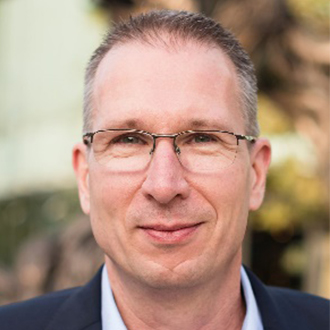
Martin Maier, PhD
SVP Oncology
Alnylam Pharmaceuticals
About Martin Maier, PhD
PERSONAL STATEMENT/MOTIVATION:
As someone who has spent his entire professional life working on therapeutic oligonucleotides, I highly appreciate the mission of the Oligonucleotide Therapeutics Society to promote research in the field, provide a forum for open scientific exchange, and foster communication and cooperation among scientists across academia and industry, across disciplines and globally across borders. As part of this framework, the OTS is also providing a platform and support for the next generation of scientists entering this field.
Triggered by the significant clinical successes of the past few years, we are currently witnessing a rapid expansion of the field of nucleic acid medicines. This has resulted in several new and exciting challenges, such as the need to educate a broader audience on the underlying technologies and, critically, the need to substantially increase the number of young scientists and researchers working on therapeutic nucleic acids. Similarly, the OTS community is challenged to adapt to a field rapidly increasing in size and complexity. Having already served on the OTS Board of Directors for the past 2 terms, I believe my experience in the discovery and development of therapeutic nucleic acids and in the education and mentoring of junior colleagues in the field will allow me to continue to support the OTS directly and significantly. Besides being a forum for scientific exchange and debate and fostering collaboration among the scientific community, the Society will have to play an increasingly important role in educating the public about our science and encouraging open scientific dialogue. I would be honored to serve on the OTS Board of Directors for another term to support its important mission and to help maintain its focus, relevance, and integrity for the years to come.
BIOGRAPHY:
I joined Alnylam Pharmaceuticals in 2006 where I currently serve as Senior Vice President, Oncology heading Alnylam’s Oncology efforts. During my time at Alnylam, I have contributed to the development of lipid nanoparticles and GalNAc conjugates, two clinically validated platforms for siRNA delivery, and the advancement of multiple therapeutic programs to development, which culminated in the approval of the first-four RNAi therapeutics (ONPATTRO™, GIVLAARI™, OXLUMO™ and LEQVIO™). I received my Ph.D. in Organic Chemistry in 1997 at the University of Tübingen, Germany with Professor Ernst Bayer. Early 1998, I moved to the U.S. for my postdoctoral research at Isis (Ionis) Pharmaceuticals, where I subsequently assumed a permanent position working on novel chemistries and delivery systems for antisense oligonucleotides. During my more than 25years of experience in the field of oligonucleotide therapeutics, I have contributed to the advancement of therapeutic nucleic acids across both ASO and RNAi platforms. I have co-authored more than 80 peer-reviewed scientific publications, reviews and book chapters and am an inventor on more than 40 issued patents.
AFFILIATIONS:
- Current member of the OTS BoD
- Member of the American Chemical Society
- Member of the Scientific Advisory Board, ProQR Therapeutics
- Member of the Scientific Advisory Board, hC Bioscience
- Member of the Scientific Advisory Board, hC Bioscience
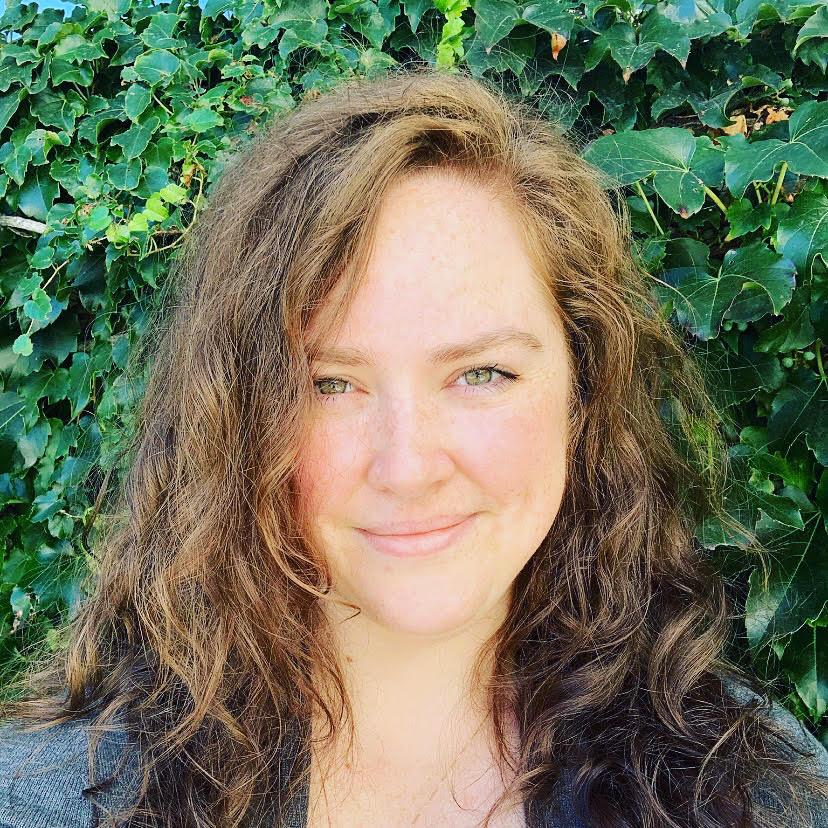
Erin McConnell, PhD
Research Scientist and Coordinator
Carleton University
About Erin McConnell, PhD
PERSONAL STATEMENT/MOTIVATION:
I have been involved with the OTS in various capacities since 2019, when I was chosen to be a Trainee Representative to the Board of Directors. In that role, I became involved in both the awards committee and the poster competition at the Annual Meeting, a connection I have maintained since. The pandemic brought interesting but exciting challenges, when the society pivoted from in-person to virtual meetings. In 2020, I was excited to get involved as part of the organizing committee for the Annual Meeting. In 2021, my fellow trainee reps and I were the co-chairs of the organizing committee for the Annual Meeting. In that same year I became a coordinator of the OTS Webinar Series, which has highlighted researchers at all stages of their careers, with content ranging from basic research, to clinical trials, and professional development. When my Trainee Representative term was completed, I became a member of the Scientific Advisory Council. Most recently I chaired the Chemistry &Delivery and Society Awards sessions at the 2023 Annual Meeting. One of the things that makes the OTS so special is the way it embraces and supports trainees. I want to serve on the OTS Board of Directors to help inspire and support the next generation of scientists,and to help facilitate collaborative efforts. In addition to my experience with the OTS, I bring logistical and managerial experience from several other initiatives including science outreach and promotion programs by Carleton University, the National Science and Engineering Council of Canada (NSERC) and the Canadian Association for Girls in Science (CAGIS), and as an Operations Committee Member with the N = 1 Collaborative who seek to make individualized medicines safe and rapidly available to patients worldwide. I am incredibly passionate about the importance of mentorship, and would love to support the OTS Mentorship Program, as well as facilitates more intensive professional development program for trainees to complement the existing program.In my career I have had the privilege of acting as a mentor to over 40 individuals ranging in experience from youth science fair competitors to postdoctoral fellows. I have also organized and delivered professional development workshops for graduate students.Finally, I would like to help promote the local delivery grant program, as well as investigate how the OTS can support organizations with shared interests like the N = 1 Collaborative, through collaborative efforts.
BIOGRAPHY
I am currently a Research Scientist and Coordinator of the Laboratory for Aptamer Discovery and Development of Emerging Research (LADDER),which is under the scientific direction of Prof. Maria C. DeRosa at Carleton University. Our research focuses on a class of oligonucleotide therapeutics called aptamers. Aptamers are short single-stranded DNA oligonucleotides that bind to target molecules with high affinity and selectivity, and can be applied to disrupt pathological processes. For example, we recently selected a DNA aptamer that binds to and inhibits alpha-synuclein aggregation in a mouse model of Parkinson’s disease. We have also developed a therapeutic aptamer that binds to the small molecule neurotransmitter dopamine, and attenuates hyperlocomotion in a rodent model of dopamine dysregulation in the central nervous system. To deliver these aptamers to the brain after systemic administration, we developed a lipid nanoparticle system that employes a blood-brain-barrier targeting aptamer. I am fortunate to have been a part of many interdisciplinary teams during my career. I completed my B.Sc. in Neuroscience and Ph.D. in Chemistry at Carleton University, studying aptamers for applications in the central nervous system. Additionally, I trained with Prof. Yingfu Li in the Department of Biochemistry and Biomedical Sciences at McMaster University (functional nucleic acids and biosensors), and Prof. Vincent Tabard-Cossa in the Department of Physics at the University of Ottawa (single-molecule detection via solid-state nanopores), before returning to Carleton University to help run the LADDER. In addition to my scientific interests, I am very involved in science outreach and communication, as well as equity, diversity, and inclusion in STEM initiatives.
AFFILIATIONS:
- OTS Webinar Series, Coordinator
- Nucleic Acid Therapeutics, Editorial Board Member
- N = 1 Collaborative, Operations Team Member
- Canadian Association for Girls in Science, National Advisor and STEM Expert
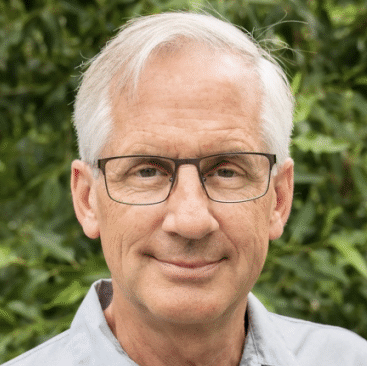
James (Jim) McSwiggen, PhD
CEO
McSwiggen Biotech Consulting LLC
About James McSwiggen, PhD
PERSONAL STATEMENT/MOTIVATION:
I would like to serve on the OTS Board of Directors to give back to a society that has been very kind to me since I first joined over a decade ago. I have been a member of the RNA Society since its founding in 1992. That society is another non-profit society dedicated to fostering RNA research, but it is not focused on nucleic acid therapeutics as is the OTS. I served as the CEO of the RNA Society from 2011 to 2019 and was responsible for the successful operation of the business unit, the annual conference,and the society’s journal, RNA. I believe that my experience in running the RNA Society could be a benefit to the OTS now that I have retired from that other position.
As the CEO of the RNA Society, I was constantly looking for ways to boost the participation of scientists from nucleic acid therapeutics companies. That organization has many excellent academic scientists and the presentations at their annual meeting are top notch, but the membership and annual meeting was significantly depleted in industry participation, with only about 5% of meeting attendees coming from industry. The OTS membership and conference is much more balanced in that regard, and I greatly appreciate the cross-polination that comes from that mix. I am hoping that my own experiences can help to maintain and improve those fruitful interactions.
BIOGRAPHY
Dr. McSwiggen (Jim) is a consultant for some of the top nucleic acid biotech companies in the world. His expertise spans a broad range,including nucleic acid drug design, chemical modifications and bioinformatics; intellectual property due diligence; database development; and data mining & analysis. He has worked with the leading companies developing siRNA, antisense, miRNA, mRNA, lncRNA and gene editing technologies, as well as working with early startups in those areas. From 2011 through 2019, Dr. McSwiggen was also the CEO of the >2000-member RNA Society; a non-profit, international scientific society dedicated to fostering research and education in the field of RNA science, and that counts seven Nobel Prize winners among its membership.
Dr. McSwiggen has worked at five different biotech start-up companies over the course of a 30-year career, including: United States Biochemical; Sirna Therapeutics (formerly Ribozyme Pharmaceuticals), MDRNA/Marina Therapeutics, Quark Pharmaceuticals, and RaNA Therapeutics. He helped to build three of them from the ground up. His work has made him an inventor on over 1600 patents and patent applications (193 U.S. and 172 non-U.S. issued patents). Since 2013, Dr. McSwiggen has worked exclusively as a consultant to over 100 biotech companies, pharmaceutical companies, and academic research groups working to develop nucleic acid therapeutics, as well as parents and rare disease orginazitions pursuing bespoke nucleic acid therapeutics for n-of-1 clinical trials.Dr. McSwiggen received a Bachelor’s degree, with honors, from the University of Wisconsin, Madison, where he was awarded a National Science Foundation Undergraduate Research Program Fellowship. His PhD in Biochemistry was from the University of Oregon where he was awarded a National Science Foundation Predoctoral Research Fellowship. He continued his post-doctoral studies in the laboratory of Nobel Prize winner Thomas Cech as an Anna Fuller Post-Doctoral Fellow and then a Howard Hughes Medical Institute Associate Investigator.
AFFILIATIONS:
- HIRM BAB (Harvard Medical School Initiative for RNA Medicine’s Business Advisory Board)
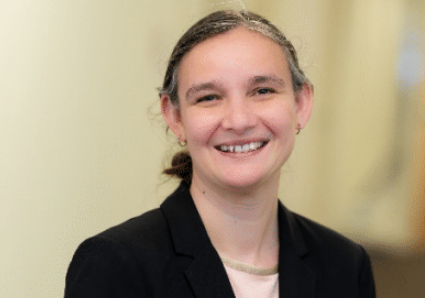
Meena, PhD
VP of Translational DMPK and Clinical Pharmacology
Stoke Therapuetics
About Meena, PhD
PERSONAL STATEMENT/MOTIVATION:
Since my PhD time from 1997, I have been working in oligonucleotide therapeutics field. What I have learned from my mentors and peers over the years, I feel obligated to share with rest of the scientific community so that we all can make progress in this field and help who are in need. My mission aligns with the mission of OTS, therefore, I would like the opportunity to serve as a board member so that I can contribute and make an impact on this organization.
In terms of my skills, I deal with budget projection/actuals etc.as part of my current role at Stoke, therefore, I am happy to contribute in that section, if needed. I also have a broad network with CROs in this field, I can help in fundraising. I am well connected with the scientists in this field, I can use my networking skills to build programs for the meetings. I do not have prior experience as a board member of any organization and would appreciate this opportunity.
BIOGRAPHY
I grew up in North India. After completing MSc. in Chemistry, I conducted my Ph.D. research in chemistry with Dr. K.N. Ganesh at the National Chemical Laboratory in Pune, India in 2002, and completed my postdoctoral research on nucleic acid analogs with Professor Larry W. McLaughlin at Boston College in 2006.
I joined Alnylam Pharmaceuticals in 2006 worked on siRNA chemistry and targeted siRNA delivery.In 2006, I joined Wave Life Sciences (priorly called Ontorii) and grew to become the Senior Director of Bioanalytical, Pharmacology and Biomarker Development at Wave Life Sciences. I served Wave for 8 years and played a pivotal role in establishing stereopure phosphorothioate oligonucleotide chemistry platform and in guiding the clinical entry of three antisense oligonucleotides for the treatment of Huntington’s Disease and Duchene Muscular Dystrophy.
My experience spans from platform development, drug discovery, preclinical and early clinical development of oligonucleotides. At my current role at Stoke, I work with clinical development and regulatory teams to support our programs in clinic and the ones entering clinic.
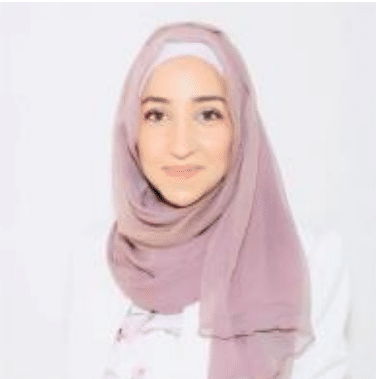
Denia Mellal, PhD
Senior Advisor in RNA Therapeutics – Oligonucleotide Chemistry
Eli Lilly
About Denia Mellal, PhD
PERSONAL STATEMENT/MOTIVATION:
During my postdoc at the MRC-LMB in Cambridge (UK) from 2015 to 2016, I developed a growing interest for applied oligonucleotide chemistry with the development of RNA therapeutics. To build up my knowledge in the field, I started reading some publications online and searched for interesting conferences.This is how I discovered the OTS website and saw the advertisement for the OTS 2016 in Montreal and therefore convinced my former supervisor to register. It was my first OTS meeting,and it reinforced my dedication to the RNA therapeutic field.Since that time, I rarely missed an OTS meeting;I was with you in Bordeaux (France), in Phoenix (Arizona, USA)and virtually in Barcelona(Spain). I do appreciate the interactions between academia and pharmaceutical industries/biotech companies and the opportunity to gain an understanding of the potential of therapeutic nucleic acids and catch up on the latest science during the talk and poster sessions.
My 6.5 years in the pharmaceutical industry have enabled me to acquire both hands-on and management experience in all aspects of Design, Synthesis, Bioconjugation and Development of innovative Oligonucleotide-Based Therapeutics.I am highly adaptable professional, and my work has been integral to the development of new chemistries in ASO and siRNA technologies.Throughout my career, I have successfully managed Research projects, supervised Research associates and collaborated within multidisciplinary and multicultural teams. This has led to the publication of several scientific papers, the filing of 2 patents in the field of RNA Therapeutics and being invited to hold several presentations at international conferences.
I would like to join the OTS board of directors and contribute to the general mission of OTS by helping the board with the organization of conferences and webinars,by communicating efficiently the OTS accomplishments, and goals to the public and by preserving support from the community.
BIOGRAPHY:
A senior research scientist in Nucleic Acid Chemistry, I am passionate about Oligonucleotide Therapeutics. I obtained my PhD in Oligonucleotide Chemistry from the University Pierre and Marie Curie –Paris VI (France) in 2012 during which I designed aminoacyl-tRNA analogues and peptidyl-RNA conjugates for the study of non-ribosomal Fem aminoacyl transferases, as part of the development of novel antibiotics. Interested by the advances in nanotechnology and materials science to overcome drug delivery challenges, I joined Prof, Andreas Zhumbuehl at the University of Fribourg (Switzerland) as a postdoctoral associate in 2013. My interest was the development of new synthetic routes for hybrid phospholipids to formulate liposomes as future nanocontainers for drug delivery in the context of cardiovascular diseases. I then came back to the Nucleic Acid chemistry field by joining Prof. John Sutherland at the Medical Research Council-Laboratory of Molecular Biology in Cambridge (UK) in 2015as a postdoctoral associate. There, I focused on the synthesis of modified oligonucleotides and hybrid RNA duplexes used as template to study the aminoacylation, the transfer of amino acid from the 5’ phosphate to 3’OH extremities and peptide synthesis in prebiotic conditions. This experience enabled me to learn more about the chemical origins of genetically encoded translation. After a fruitful experience in academia, I pursued my career in pharmaceutical industry in 2016 and joined Roche Basel (Switzerland) for 5 years as a Research Scientist in RNA Therapeutics where I synthesized innovative conjugated ASO libraries to improve their PK/PD profiles and tissue-specific drug delivery in the context of CNS, liver, and eye. In order to stay at the forefront of the most recent and promising chemistry developments in the field of nucleic acid-based therapeutics, I moved from Europe to the USA and integrated Lilly Genetic Medicines department in Cambridge, MAin 2022 as a Senior Advisor in RNA Therapeutics. My interests are the design, the synthesis and development of oligonucleotide-based therapeutics to support extrahepatic delivery.
AFFILIATIONS
- Member of OTS
- Member of Healthcare Business Association (HBA)
- Member of the French NGO named LIFE to provide appropriate assistance to vulnerable populations, in emergency or development situations(access to drinking water, sanitation, hygiene and food security)
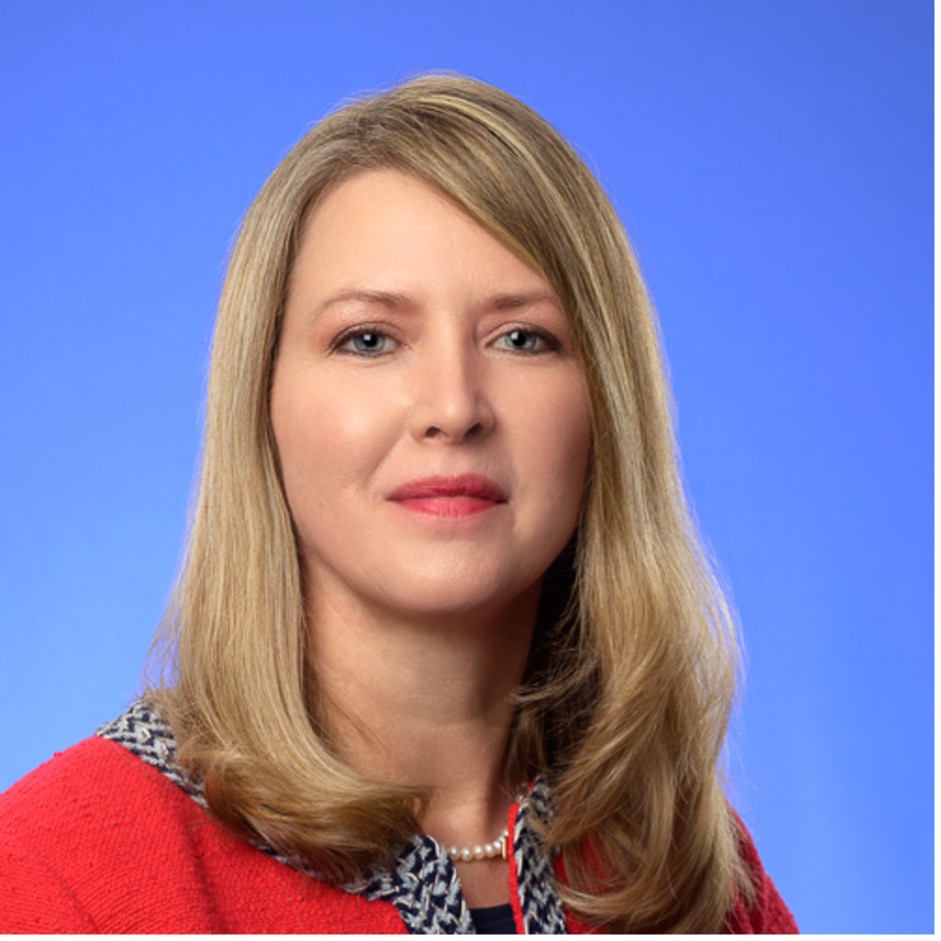
Rebecca R. Miles, PhD
Senior Director
Genetic Medicine
Eli Lilly and Company
About Rebecca R. Miles, PhD
PERSONAL STATEMENT/MOTIVATION:
I am a passionate pharmaceutical discovery research scientist that has supported many therapeutic indications. In addition to exploring mechanism of action studies by investigating differential gene regulation, I was an early adopter of RNAi as a screening tool for functionalizing genes and validating them as therapeutic targets. I expanded Lilly’s RNAi screening platform to be able interrogate whole genome siRNA libraries. Over the years, I have watched the RNAi space mature into a durable and efficacious modality of its own and now have been part of building an oligonucleotide platform at Eli Lilly. The science and groundbreaking research that broke down the barriers to enable RNAi therapeutics has been supported by the OTS, and communicated through its journal, Nucleic Acid Therapeutics. My understanding of the oligonucleotide field would not have happened without the OTS annual meetings and the body of literature published by its members. I am enthusiastic about RNAi and enabling it as a therapeutic modality to transform patient lives by drugging previously undruggable targets. It has been a great honor to serve the OTS as a board member for the last 2 years and “do the work” of the Society to continue to help advance the oligonucleotide field. I am eager to participate in another term as a board member to help advance the mission of OTS in an exciting time of expansion and impact for oligonucleotide therapeutics.
In addition to scientific passion and a humble desire to serve the OTS, I bring my years of discovery research and leadership in enabling new therapeutic modalities at Eli Lilly. Most recently, I provide scientific leadership and direction for the Genetic Medicine pharmacology team and am an active mentor to students and early career professionals. I have also had the joy of leading and organizing two regional OTS Delivery meetings (2022 and 2023)in the Midwest to create a local and affordable high-quality meeting focused on oligonucleotide therapeutics.
BIOGRAPHY:
I received a master’s degree in biology from the College of William and Mary and a Ph. D. in Biochemistry and Molecular Biology with a focus on translational control and the integrated stress response from the Indiana University School of Medicine. Over my20+ year Lilly career as a cell and molecular biologist, I have supported small molecule, peptide, and large molecule discovery efforts in the areas of osteoporosis, breast cancer, osteoarthritis, atherosclerosis, obesity, kidney disease, oncology, immunology, neurodegeneration, and pain. I have been recognized for leadership and implementation of genomic technologies to drive and impact drug discovery to identify and validate new targets for the Lilly portfolio. Over the last several years, I have continued to evaluate new targets for emerging therapeutic modalities. During my career, I have authored or co-authored 30 papers, given presentations at many national and international scientific meetings, and am a co-author on several patents.
AFFILIATIONS:
- Member of OTS Society 2020-2023
- Board Member OTS Society 2022-2023
- Member of the Society for Investigative Dermatology
- Scientific Advisor and Chair Midwest Symposium on Oligonucleotide Therapeutics
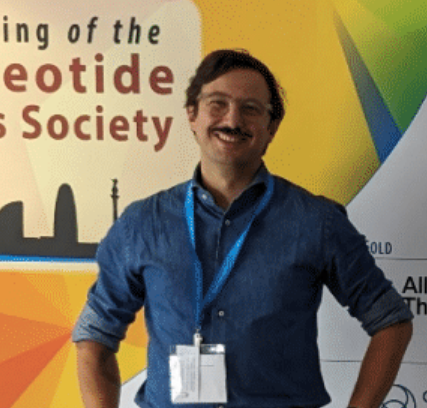
Riccardo Panella, PhD
Associate Professor, CSO
Aalborg University
About Riccardo Panella, PhD
PERSONAL STATEMENT/MOTIVATION:
BIOGRAPHY:
I got my master degree in Biotechnology as well as his Ph.D. in Molecular Oncology in at the University of Perugia in Italy after which he was awarded a post-doctoral fellowship from the Marie Curie Foundation in 2014. I worked for six years as a Post-Doctoral fellow at the Cancer center of the Harvard Medical School.
I focused my entire career on translational medicine, with the main goal of developing new treatment options and new therapeutic approaches to disease. My expertise lies in the application of non-coding RNA as both a therapeutic target and as cutting-edge technology for developing new therapeutic paradigms.
I am now serving as Associate Professor at the Center for RNA medicine in the Copenhagen campus of Aalborg University in Denmark, leading a team that is currently investigating the role of non-coding RNAs in metabolic homeostasis and how it affects human metabolism. In parallel to my academic activity, I am also one of the co-founders and CSO of Resalis Therapeutic, a biotech company aim developing an innovative RNA based approach for the cure of obesity.
AFFILIATIONS
- Associate Professor, 2022, present; Aalborg University, Center for RNA Medicine, Copenhagen, Denmark
- Co-Founder, Board of Directors member, Chief Scientific Officer, 2021, present; Resalis Therapeutics srl Turin, ITA
- Professional Membership:
- 2015 -Present Ludwing Cancer Center at Harvard Medical School
- 2014 -Present American Association for Cancer Research (AACR)
- 2015 -Present American Association for the Advancement of Science (AAAS)
- 2015 –Present: Member of American Association for the Advancement of Science
- 2017 -Present: Member of Harvard Medical School Initiative for RNA medicine
- 2018 -Present: Member of RNA society
- 2018 –Present: Member of Oligonucleotide Therapeutic Society (OTS)
- 2021 –Present: Member of European Association for Study of the Liver (EASL)
- 2022 –Present: Member of European Association for study of Obesity (EASO)
- 2022 –Present: Member of Early Career Network (ECN) / EASO
- 2022 –Present: Member of Nordic Nucleic Acid Based Medicine Industry Network
- 2022 Member of ECN/EASO Committee for EASO2024 European Annual Congress
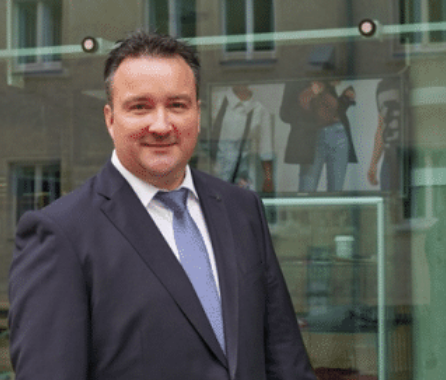
Tobias Poehlmann, PhD
CEO
BianoGMP GmbH
About Tobias Poehlman, PhD
PERSONAL STATEMENT/MOTIVATION:
Oligonucleotides have been my research interest for my whole scientific career. As a young postdoc, I started an independent research group in order to develop therapeutic siRNAs to treat breast cancer based on a peptide-siRNA prodrug technology. This development was the origin of BianoScience –a startup company that developed this technology into the late preclinical stage. As we faced the challenge to access small scale GMP material, we started BianoGMP, a CDMO company focused on the production of small scale oliconucleotide GMP material to serve scientific driven customers and support them to bring their projects into clinical trials.
As a member of the OTS Board, I could bring my experience in oligonucleotide development as well as production of clinical material to the community supporting them in the transfer of their projects into the clinics. This transfer is often the critical step since scientific, pharmaceutical and clinical developments are often completely different worlds –different in language, people and financing –and far too often these are reasons, why highly potent projects are not getting to patients, who massively could benefit from the oligonucleotide developments.
BIOGRAPHY:
Born in 1978 in Germany, Studies in general biology, PhD in cancer biology, scientific internships e.g. at the Ontario Veterinary College in Guelph, Canada, independent academic research with a total of 4Mio€ acquired Governmental funding, founder of BianoScience (2012) and BianoGMP (2017), since 2022 lecturer and appointed professor at the Westsächsische Hochschule Zwickau.
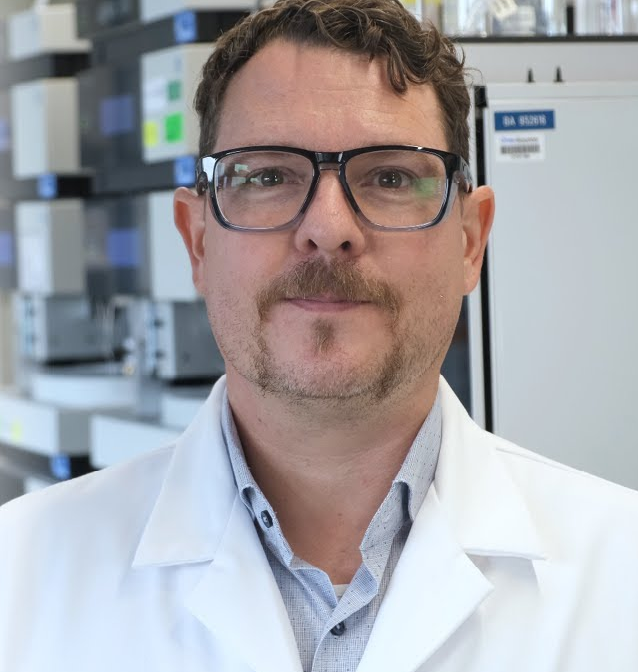
Daniel Samson, PhD
Head Oligonucleotides
Bachem
About Daniel Samson, PhD
PERSONAL STATEMENT/MOTIVATION:
Serving on the Oligonucleotide Therapeutics Society (OTS) Board of Directors holds immense strategic value. My current role at Bachem places meat the forefront of oligonucleotide process development for multiple different companies from small biotech to big pharmaceuticals, providing a unique perspective crucial for steering the OTS towards industry advancements.
Bachem’s standing as a leading and fast-growing oligonucleotide drug substance maker signifies my deep understanding of the latest trends in oligonucleotide manufacturing. This expertise positions meas an advocate translating scientific innovation into practical applications. By joining the OTS Board, I will be bridging theoretical advancements with real-world production challenges, ensuring that the society’s initiatives align with industry demands.
My leadership as the Head of Oligonucleotides entails a holistic view of the drug development pipeline. This encompasses not only synthesis but also regulatory compliance, quality assurance, supply chain aspects, sustainability, and cost-efficient manufacturing processes. Bringing this multifaceted perspective to the board, I can advocate for comprehensive strategies that address the entire lifecycle of oligonucleotide therapeutics, from research and development to commercialization.
Collaboration lies at the heart of successful board governance. My experience at Bachem has well-honed my ability to navigate cross-functional, global teams, fostering an environment where diverse talents converge for a common goal. This skill is invaluable for the OTS Board, where diverse expertise coalesces to shape the future of oligonucleotide therapeutics.
Moreover, my role involves staying abreast of evolving industry trends and technological advancements. This enables me to contribute to the board’s discussions on emerging therapies, ensuring that the OTS remains at the forefront of innovation. My participation can influence the society’s agenda, shaping it to be anticipatory rather than reactive.
In conclusion, my candidacy for the OTS Board is characterized by a combination of business and technical acumen, leadership experience, and a comprehensive understanding of the oligonucleotide landscape. By offering a unique blend of industry insight and strategic vision, I am poised to contribute significantly to the society’s mission, advancing oligonucleotide therapeutics for the benefit of the broader scientific and social community.
BIOGRAPHY:
As the Head Oligonucleotides at Bachem, a global leading CDMO, I have ~20 years of experience in pharma operations, technology, and business. My mission is to help pharma and biotech companies manufacture and commercialize their innovative drugs efficiently and reliably, especially in the field of oligonucleotide-based drugs. Besides new modalities and drugs I am passionate about sustainable manufacturing, innovation, and digital transformation, which I apply to optimize the processes and technologies for oligonucleotides production. I also lead the growth strategy and vertical integration for the oligonucleotides business unit, leveraging my intrapreneurial mindset and Executive MBA education. Additionally, I am a thought leader and speaker in state-of-the-art TIDES manufacturing science and technology (MSAT) and Chemistry, Manufacturing, Controls (CMC). In terms of oligonucleotides projects, I have hands-on manufacturing experience with numerous antisense (ASO) and siRNA, Aptamers/Gapmers, and recently as he first CDMO manufactured siRNA conjugates in multi-kg scale. I hold several process patents for scalable and sustainable large scale oligonucleotide manufacturing.
Previous career stages:
Vice President Drug Substance Manufacturing
- Member of Site Management
- Vice President Production of active pharmaceutical ingredients / APIs & diagnostics, peptides, siRNA, DNA (oligonucleotides), complex small molecules, manufacturing science and technology / MSAT
- Areas:
- Operational Excellence and Smart Factory initiatives (state-of-the-art engineering, automation, digital transformation, Industry 4.0
- Innovation management Operations Strategy, strategy execution, growth initiatives
- Operational Technology (OT), change management)
- Handling of highly potent active pharmaceutical ingredients (HAPI)
- Role:
- Member of Site Management
- Vice President Production of active pharmaceutical ingredients / APIs & diagnostics, peptides, siRNA, DNA (oligonucleotides), complex small molecules, manufacturing science and technology / MSAT Areas:
- Operational Excellence and Smart Factory initiatives (state-of-the-art engineering, automation, digital transformation, Industry 4.0
- Innovation management
- Operations Strategy, strategy execution, growth initiatives
- Operational Technology (OT), change management)
- Handling of highly potent active pharmaceutical ingredients (HAPI)
Various leadership positions of increasing responsibility in Pharmaceutical R&D and Production
-
Director, Senior Director, Department Head, up to 12 direct reports
-
Areas:
-
-
Chemistry, Manufacturing, Controls (CMC) of Active Pharmaceutical Ingredients (API)
-
Operational excellence, lean six sigma, 5S, good manufacturing practice (GMP), key performance indicators (KPI)
-
Health, Safety, Environment (HSE) and Quality regulations, FDA inspections
-
Chemical production for developmental & commercial pharmaceuticals
-
Industrial-scale chromatography and freeze-drying (lyophilization) of bulk drug substance
AFFILIATIONS
- Besides OTS, I am member of the International Society for Pharmaceutical Engineering (ISPE), the Green Chemistry round table for Oligonucleotides of the American Chemical Society (ACS), the German Chemical Society(GDCh) &Swiss Chemical Society (SCS), and serve as a strategy advisor for small biotech companies in Switzerland.
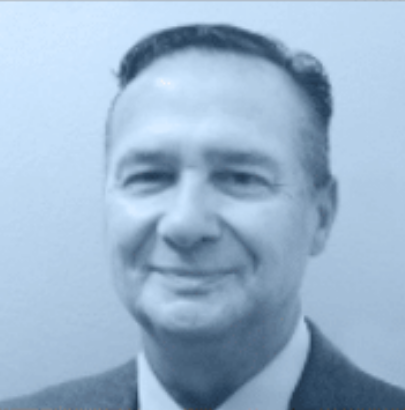
David Slack, MBA
CEO
Impilo Therapeutics, Inc.
About David Slack, PhD
PERSONAL STATEMENT/MOTIVATION:
BIOGRAPHY:
AFFILIATIONS
- Currently serve in the Board of Impilo Therapeutics and on Advisory Board for TrovaNow, part of the PRECEDE Consortium for early detection of pancreatic cance. Previously served on the Board of Cend Therapeutics; Lisata Therapeutics.
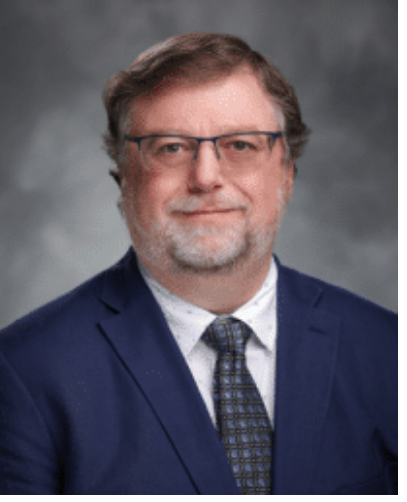
Bruce A. Sullenger, PhD
Professor
Duke University
About Bruce A. Sullenger, PhD
PERSONAL STATEMENT/MOTIVATION:
Since its inception, the Oligonucleotide Therapeutics Society (OTS) has been the leading scientific society promoting the development of oligonucleotide-based therapeutics. Since joining the OTS in 2005, I have witnessed how our field has grown from a concept that many thought was an impractical if not impossible approach to combat diseases to a flourishing field leading the biomedical worlds response to many unmet medical needs ranging from treating rare genetic disorders to addressing a global pandemic and common human illnesses such as cardiovascular disease, cancer and stroke.
I have served on the OTS Board of Directors from 2007-2014 and 2022-2023 and was the Treasurer of the Society from 2008-2010. I have also served as the Co-Editor-in-Chief for OTS’s journal Nucleic Acid Therapeutics from 2011-present, a time span which OTS has continuously grown and moved to the forefront of translational medicine. In addition, I have served on the Board of Directors for the American Society of Gene and Cell Therapy and the RNA Therapeutics Society as well as multiple sub-committees including heading the ASGCT committee on oligonucleotide therapeutics. I have been an organizer of multiple aptamer meetings, the OTS Meeting in Naples and was a founding organizer of the Cold Spring Harbor Meeting on RNA Therapeutics. Finally, I was asked to testify about the importance of biomedical research including the use of oligonucleotide therapeutics by Senators Lamar Alexander and Patty Murray before the United States Senate in 2015and have been a founder of five oligonucleotide-based biotechnology companies.Thus, I believe that I bring considerable experience to the OTS Board about translation of oligonucleotide research from the academic laboratory to the clinical and commercial space. Therefore, I seek your support for re-election to the OTS Board so that I can continue to serve our Society as ever more oligonucleotide therapeutics progress from discovery to the clinic, and to the market and thereby ultimately positively impact our world community.
BIOGRAPHY:
I am a translational researcher who has been at Duke University for almost 30 years working on the discovery and development of RNA/oligonucleotide therapeutics. I obtained my PhD from Weill Cornell University working at Sloan-Kettering Cancer Institute and postdoctoral training in RNA biochemistry with Tom Cech at the University of Colorado. My research program focuses upon the generation and development of nucleic acid therapeutics for a variety of medical applications. In particular we have worked on 1.) translational medicine for treating thrombosis in the acute care settings of cardiovascular disease and stroke and 2.) therapeutic targeting of malignancies with RNA aptamer-drug conjugates. More recently my research group has also worked upon developing the use of RNA and DNA-containing DAMP/PAMPs inhibitors (DAMPinors) to limit pathological inflammation and the use of combinatorial chemistry approaches to generate novel guide RNAs for improved CRISPR gene editing. Three different RNA/oligo-based drugs discovered/invented in my laboratory have been translated into the clinic an accomplishment recognized by the awarding of the 2015 ASGCT Outstanding Achievement award and election into the National Academy of Inventors (2018) and the AAAS (2014). In addition, I have served as the Founding Director of the Duke Translational Research Institute (DTRI; now Duke CTSI) as well as the Associate Director for Translational Research for the Duke Cancer Institute. Finally, I am a scientific founder of five biotechnology companies two of which completed IPOs and one recently completing the first in human clinical study of a novel thrombolytic RNA aptamer for treatment of ischemic stroke. Thus, I have extensive experience building research teams spanning the academic-private sectors to move important oligo/RNA discoveries and inventions from the laboratory to the bedside to improve patient care and health.
AFFILIATIONS:
- Board of Directors, Basking Biosciences Inc
- Board of Directors, Society of RNA Therapeutics
- Scientific Advisory Board, Rznomics Inc
- Scientific Advisory Board, SomaLogic Inc
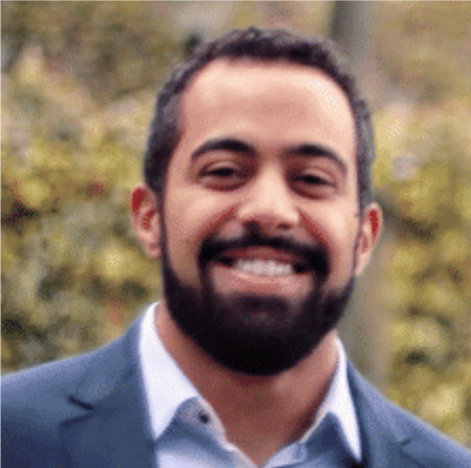
Omar Wagih, PhD
Associate Director
Deep Genomics
About Omar-Wagih, PhD
PERSONAL STATEMENT/MOTIVATION:
My eagerness to join the board stems from a genuine desire to give back and contribute to the oligo community that has helped me grow professionally and personally over the last 7 years. In that time, I’ve had the privilege of closely interacting with industry experts such as Massad Dhama, Muthiah Manoharan, Steve Dowdy, and Art Krieg during OTS meetings. These experiences have been not only deeply meaningful but also instrumental in my professional growth. I’m now keen on elevating my involvement by joining the OTS team, fostering stronger connections with such experts, and contributing to the rich learning environment the society provides.
I believe that my background in computational biology and machine learning can uniquely contribute to the OTS. Attending OTS meetings has revealed to me that there is considerable potential for enhancing the deployment of machine learning and computational biology in how we approach the development of oligonucleotide drugs. I am motivated to infuse these domains into the OTS framework, whether it’s during OTS meetings or through other strategic initiatives.
BIOGRAPHY:
crucial role in the development of various preclinical programs, such as the Wilson’s disease research program, where I have led computational and machine learning efforts to advance compounds into pre-IND enabling work. Throughout my tenure at Deep Genomics, I have actively participated in fostering strategic partnerships and driving business development initiatives, serving as the technical lead in these endeavors.
Before joining Deep Genomics, I earned a PhD in Computational Biology and Biological Sciences at the University of Cambridge (EMBL-EBI) and an MSc in Computer Science at the University of Toronto. My academic career focused on exploring the mechanistic impacts of natural and disease-causing mutations in yeast, human, and bacteria models, and how they correlate to higher-order phenotypes.
I enjoy communicating scientific ideas to wider audiences and enjoy volunteering, mentoring and outreach. I have a broad range of hobbies ranging from photography, drones, making video games (e.g. guessthecorrelation.com), basketball, and traveling the world.

Jim Wetterings, PhD
Vice President Research, RNA Therapeutics & Delivery
Sirnaomics
About Jim Wetterings, PhD
PERSONAL STATEMENT/MOTIVATION:
My mission is to foster everyone’s potential and to provide surroundings to expand on this. I have performed Oligonucleotide Therapeutics research in both academia, industrial as well as in the combined setting. I have been part of building world class oligonucleotide laboratories, was part of starting new teams and developed these into synergistic, flexible, and robust organizations delivering state of the art research with the ultimate patient in mind. I have proposed, initiated, and guided both academic and industrial projects including training, mentoring, and guiding of industrial PhDs, Postdocs, junior scientists during my career. Cultivating an environment where people feel welcome, appreciated, and valued. I will continue to promote this as part of the OTS Board of Directors.
BIOGRAPHY:
I started my career in Oligonucleotide therapeutics at the van Boom, Biosyn group in Leiden University, the Netherlands in 2002 performing a master’s internship on the synthesis of Peptide Nucleic Acids and targeted conjugates thereof. A second master’s internship on targeted delivery of Splice Switching Oligonucleotides was performed at Prosensa, Leiden, the Netherlands in 2004. During my PhD2004-2008at Leiden University, I performed research on synthesis and evaluation of CpG Oligonucleotide and other Toll like receptor ligand targeting peptide conjugates functioning as potential synthetic vaccines. I was a Post doc Medicinal Chemistry at the Vrije Universiteit, Amsterdam investigating small molecule inhibitors of Influenza A from 2008-2010. My first Biotech job was as research scientist chemistry at Cenix BioScience BVBA between 2011-2013in Beerse, Belgium developing CNS targeting siRNA conjugates in a collaboration with Janssen Pharmaceuticals. My second Biotech position was at Cristal Therapeutics, Maastricht, the Netherlands2014-2019 developing targeted nanomedicines capable of controlled delivery of a range of oligonucleotides to tumors. In 2019 I moved to AstraZeneca, Sweden to help build the Oligonucleotide platform as Principal Scientist Oligonucleotide Chemistry and work on novel (targeted) oligonucleotides. Late 2019 I moved to Sirnaomics USA to become Senior Director, Head of technology Innovation developing novel targeted RNAi triggers. Since October 2023 I lead a department that focuses on developing targeted oligonucleotide conjugates as well as nanoparticle-based delivery systems capable of delivery of RNAi triggers to a broad range of tissues.This totals an experience of 20+years in understanding and developing Oligonucleotide Therapeutics. In addition to this, I help various conference organizations to create an appealing, exciting, and balanced Oligonucleotide focused agenda as well provide a biannual workshop on Oligonucleotide Conjugation strategies. I am a regularly invited speaker, chairperson, expert panel member at major Oligonucleotide conferences. Outside of these activities I help raise oligonucleotide awareness by sharing exciting publications as well as help job seekers in finding their new home in the Oligonucleotide Therapeutics field.
AFFILATIONS:
- SAB Member Oxford Global Conference –oligonucleotide Chemistry & Therapeutics Europe
- SAB Member SAE Media Oligonucleotide Therapeutics & Delivery conference series
- SAB Member TIDES Conference Series
- TIDES Training Series –Thought Leader –Oligonucleotide Conjugate Strategies workshop.
- OTS Member since 2011
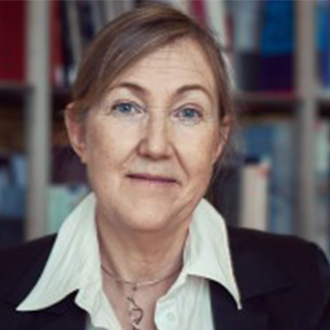
Marie Wikström Lindholm, PhD
SVP, Head of Molecular Design
Silence Therapeutics
About Marie Wikström Lindholm, PhD
PERSONAL STATEMENT/MOTIVATION:
During my first period on the OTS BoD I have had the pleasure to be part of the team starting the mentoring program, and also served as a mentor myself –it is very rewarding to share my perspective as a person with both industry and academic experience, good and bad, and if this can help younger people in our field to find their way that is worth a lot. I have also happily contributed in other ways such as reviewing travel grant applications, posters for poster awards, abstracts for the annual meeting, and 2022 I chaired a machine learning at the annual meeting. It is almost overwhelming at times to see how fast our field is evolving, and being part of the OTS BoD means I can contribute to different ways of “spreading the word”. I would be honored to continue to do this for another period.
BIOGRAPHY:
I started out with a BSc in chemistry, a Life Sciences PhD, and post-doctoral research projects in Berkeley and London before returning to Sweden where I joined a research team working on a vaccine against atherosclerosis. In 2006 I became an Associate Professor in Experimental Cardiovascular Medicine.
May 2007 I changed pace and started at Santaris Pharma, a biotechnology company developing RNA-targeting drugs using locked nucleic acid (LNA) technology. As group leader in Hyperlipidemia and project leader in Metabolic Diseases I worked on LNA oligonucleotide drug development from molecule design through in vitro screening, in vivo activity and metabolism studies, and finally as lipid metabolism expert when the apoB, PCSK9, and miR-122 targeting programs reached the stage of clinical development. I advanced to VP, Director in Discovery Biology. After Santaris was acquired by Roche I was appointed Expert Scientist in Discovery Technology and Head of Targeted Delivery of oligonucleotide conjugates. In that role I headed interdisciplinary teams across Roche sites, led collaborations with academia,and frequently participated in evaluations of outside opportunities for targeted delivery, including setting up PoC study criteria of targeting moieties such as aptamers, antibodies, and small molecule conjugates.
December 2017 I returned to biotech when I was recruited to Silence Therapeutics where I am leading a skilled team focusing on fine-tuning design of GalNAc-conjugated siRNA and exploring extra-hepatocyte siRNA targeting.
AFFILIATIONS:
I have a consultancy, Maclawili, through which I take on tasks building on my experience outside, and not in conflict with, my work at Silence.
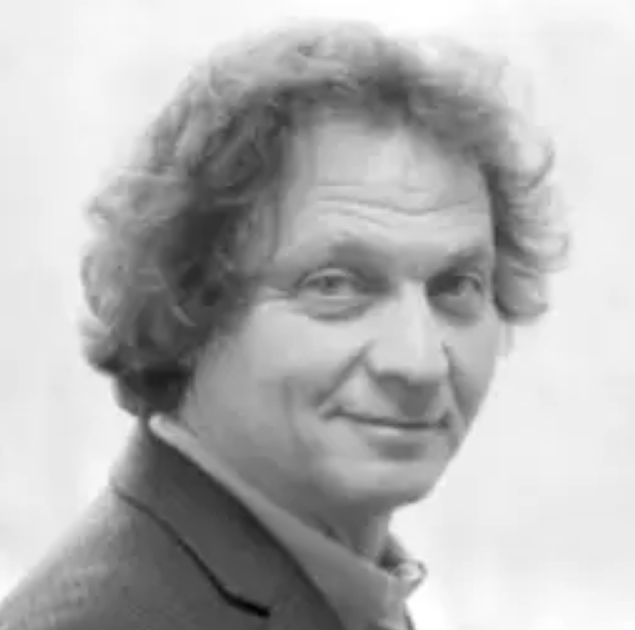
Alexey Wolfson, PhD
CEO/CSO
Advirna
About Alexey-Wolfson, PhD
PERSONAL STATEMENT/MOTIVATION:
BIOGRAPHY:
During my time at the University of Colorado, I conducted research with a group comprising up to five researchers, including postdocs, technicians, and students. In my current role as CEO/CSO at Advirna, I gained additional background and understanding of operational and manufacturing processes. At Advirna, we achieved significant progress in expanding the utilization of fully modified siRNA conjugates as research tools and therapeutic agents, offering corresponding services to the scientific community.
My extensive knowledge in assay development facilitated the establishment of a platform system, enabling the screening, validation, and manufacturing of functional siRNA compounds and other therapeutic oligonucleotides against hundreds of targets. I successfully led the growth of Advirna froma virtual start-up to a fully established Contract Research Organization (CRO), providing a wide range of services in the development of oligonucleotide therapeutics and functional genomics tools.
As a co-founder of the therapeutic immunooncology start-up MirImmune, I aimed to leverage RNAi technology to enhance the efficacy of therapeutic T-cells by suppressing immune checkpoint expression. Several compounds developed by Advirna and MirImmune are currently in different stages of clinical development by third parties.
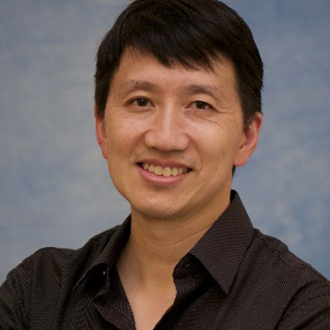
Timothy Yu, MD, PhD
Associate Professor
Harvard Medical School
About Timothy Yu, MD, PhD
Boston Children’s Hospital
PERSONAL STATEMENT/MOTIVATION:
I owe a great debt to the Oligo Therapeutics Society community, which welcomed me in 2017 when I, brand-new to the antisense oligonucleotide field. Many members stepped up to advise us (Art Krieg, Susan Srivatsa, Fran Wincott, Frank Bennett, Frank Rigo, Firoz Antia, Sudhir Agrawal, Kim Tyndall, to name only an incomplete few) in our effort to develop a clinical-grade antisense oligonucleotide (milasen) for a young child with a fatal neurogenetic disorder. I’d like the opportunity to repay that favor through my service. In the years since that case, I have benefited greatly from collaborations with many additional OTS members too numerous to name.
I have a long track record of collaborative science, having taken active roles in large scientific consortia like the Autism Sequencing Consortium and the Simons Foundation for Autism Research for the past ten years.
If elected to the OTS Board, I look forward to learning from fellow board members, and will gladly offer my genetics and clinical expertise in return. In particular I hope to be able to bring a unique perspective due to my ongoing efforts to advance the use of oligonucleotide technologies for individualized / N-of-few medicines. I serve as one of the founding contributors to the n-Lorem foundation, the founder of the N=1 collaborative, and an advisor to several other relevant efforts (e.g. the Dutch Center for RNA Therapeutics, or the brand-new Ultra Rare Disease Gene Therapy Network sponsored by the National Institute of Neurological Disorders and Stroke). The OTS has a real opportunity to lead in this field as we grapple with the clinical, scientific, and regulatory opportunities and challenges in this space. Solving these challenges will not only benefit oligonucleotide work, but create a platform for individualized medicine using other nucleic acid-based therapies (siRNA, morpholinos, mRNA, CRISPR, etc.).
BIOGRAPHY:
Dr. Yu is a neurogeneticist at Boston Children’s Hospital and Harvard Medical School. He obtained his undergraduate degree in Biochemistry at Harvard College. As a MD-PhD student at UCSF, he used molecular genetics to elucidate basic mechanisms of neuronal attraction and repulsion in the wiring of the C. elegans nervous system, and authored or co-authored papers in Science, Neuron, Nature Neuroscience and Nature Reviews Neuroscience. He then completed neurology residency at Massachusetts General Hospital and Brigham and Women’s Hospital. He joined the faculty in the Division of Genetics and Genomics at Boston Children’s Hospital, and is currently Associate Professor at Harvard Medical School and an Associate Member of the Broad Institute. He leads a cross-disciplinary research group that operates at the intersection of genomics, neurobiology, and bioinformatics. Tim’s group was one of the first in the field to deploy high throughput sequencing methods for human genetics, and today continues to use advanced sequencing and analytics to understand the genetic architecture of autism, and other disorders of brain development. His lab has also translated these tools to the hospital, conducting analyses of rapid-turnaround genomic sequencing in both the neonatal intensive care unit and the newborn nursery. Finally, Tim’s group has pioneered disruptive approaches to accelerating treatments for orphan genetic diseases. Beginning with a young girl with Batten disease (a progressive, fatal, neurodegenerative disorder), his team demonstrated it was possible to go from genetic diagnosis to development, testing, and deployment of a novel investigational drug, using an intrathecally delivered, patient-customized oligonucleotide, in just one year’s time. His laboratory continues to work with clinicians, scientists, industry, policymakers, rare disease advocates, and the FDA to streamline this path as an option for children suffering from rare, orphan diseases, and currently has five clinical therapeutic programs in the IND or pre-IND phase for individuals with ultra-rare, orphan neurogenetic conditions.
AFFILIATIONS:
- Staff Physician, Division of Genetics & Genomics and Department of Neurology, Boston Children’s Hospital
- Associate Professor, Harvard Medical School
- Associate Member, Broad Institute of MIT and Harvard
- Scientific Advisory Board, Mila’s Miracle Foundation
- Scientific Advisory Board, Dutch Center for RNA Therapeutics
- External Consultant Board, Ultra Rare Disease Gene Therapy Network, National Institute of Neurological Disorders and Stroke
Current OTS members are encouraged to participate in the BOD election which will be open through December 08, 2021. All current members have been emailed a link to the ballot which can also be reached here.
If you did not receive the email or have questions about the status of your membership, contact us at info@oligotherapeutics.org.


